Transforming urban buildings

In many global cities, the only way forward is to retrofit with the latest digital solutions providing automation and energy savings.



In many global cities, the only way forward is to retrofit with the latest digital solutions providing automation and energy savings.

BROUGHT TO YOU BY REGISTER NOW

MANAGING DIRECTOR
Tushar Sahoo tushar@gecmediagroup.com
EDITOR

Arun Shankar arun@gecmediagroup.com
CEO Ronak Samantaray ronak@gecmediagroup.com

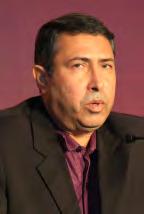
GLOBAL HEAD, CONTENT AND STRATEGIC ALLIANCES
Anushree Dixit anushree@gecmediagroup.com
GROUP SALES HEAD
Richa S richa@gecmediagroup.com
EVENTS EXECUTIVE
Gurleen Rooprai gurleen@gecmdiagroup.com
Jennefer Lorraine Mendoza jennefer@gecmdiagroup.com
SALES AND ADVERTISING
Ronak Samantaray ronak@gecmediagroup.com Ph: + 971 555 120 490
PRODUCTION, CIRCULATION, SUBSCRIPTIONS info@gecmediagroup.com
In the first edition of 2022, we present three top line features. One fifth of CO2 emissions are caused by old public buildings and revamping old buildings can bring considerable advantages in terms of savings and sustainability. In Germany 30% of the buildings are 15+ years old.
If you take a building of 5,000 sqm, ABB can produce an energy saving of 25%, and this saving in cost gives a return of investment in two years. When you look at expectations of shareholders, many of the investment funds require ESG performance.
Inside UAE, ABB’s Thorsten Muller sees a skew towards apartment buildings and the hospitality sector. And there is a significant opportunity to tap into the potential for generating energy savings. Most of the wiring outlets are conventional, there is limited automation in hotels, HVAC is controlled per room, there is no intelligence or automation built into the HVAC systems.
In our second feature, we once again look at innovative technologies to green the desert by vertical farming, sensors and applications. Similar to a self-driving vehicle, N.THING’s Cube aims to reduce the farming sector’s human element and rely on advanced technology to produce quality crops. The end goal is to achieve 100% automation of the farming process, says Leo Kim from N.THING.
UAE # 203 , 2nd Floor G2 Circular Building , Dubai Production City (IMPZ) Phone : +971 4 564 8684

USA
31 Foxtail Lan, Monmouth Junction NJ 08852, Ph: + 1 732 794 5918
Printed by Al Ghurair Printing & Publishing LLC. Masafi Compound, Satwa, PO Box: 5613, Dubai, UAE
Published by Accent Infomedia MEA FZ-LLC # 203 , 2nd Floor G2 Circular Building, Dubai Production City (IMPZ) Phone : +971 4 564 8684
A publication licensed by International Media Production Zone, Dubai, UAE @Copyright 2018 Accent Infomedia. All rights reserved.
While the publishers have made every effort to ensure the accuracy of all information in this magazine, they will not be held responsible for any errors therein.
N.THING’s centralised dashboard provides customers with an operating system and full access to Cube Farm. While it is a cloud-based OS, stability is the priority for yields in the Cube hardware. The software is designed detect emergencies, and swiftly switch to emergency mode. The Cube is fully managed by IoT, cloud computing, and data mining for stability. In our third feature of this month, we look at the subject of data insights and data structures. Each and every customer is looking at extracting insights from data they have collected. The typical data science process is to build a model and train it from a certain data set using a designer. Once you are ready to deploy you move it into production that can be enabled through automation.
Traditionally data science models were built using straight coding like Python and R. It is difficult to move, data science projects from a lab environment to a production environment. A typical challenge is moving the mass of code into production also called operationalisation
We have seen a pattern where people have collected their data, but they are not getting insights. And for insights, they need a data science platform, says Siddhartha Bhatia at Dataiku. Using Dataiku, customers are able to get models from the development stage into production within a couple of hours. Dataiku works well where an end customer has a business challenge that needs to be solved, through multiple disparate data sources.
Arun Shankar arun@gecmediagroup.com
The end goal is to achieve 100% automation of the farming process, says Leo Kim from N.THING.
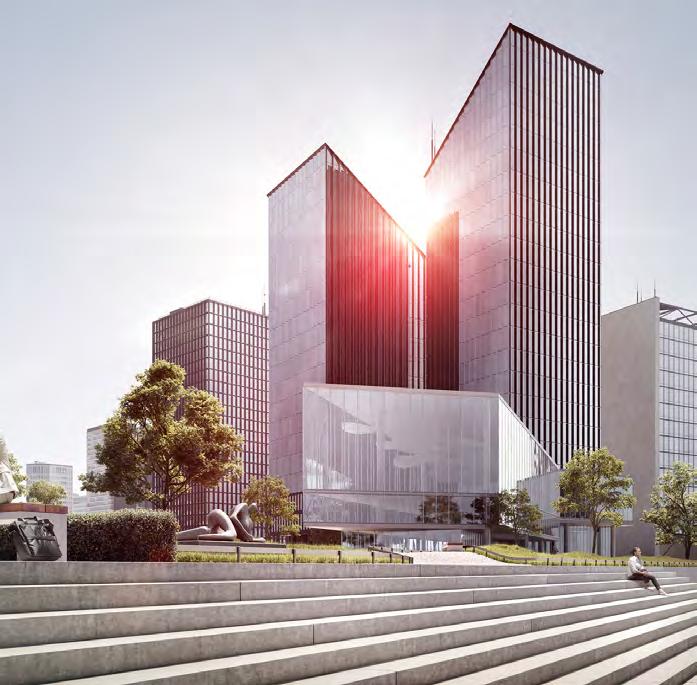


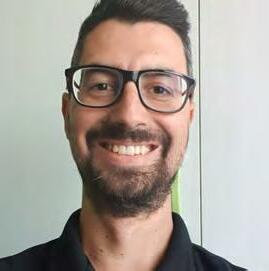

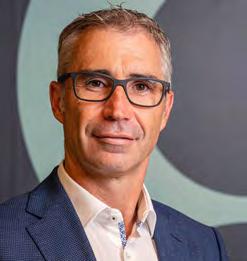

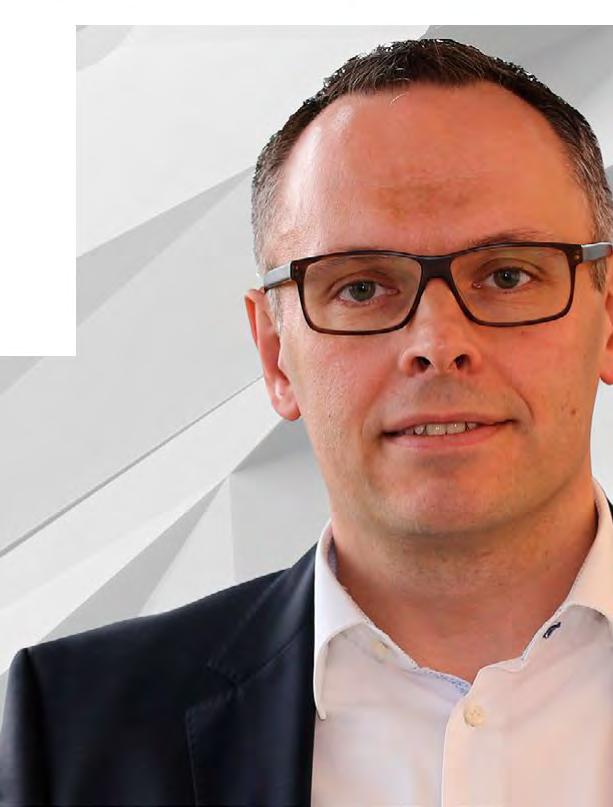
Innovations are taking place through collaborative efforts in science using artificial intelligence and blockchain bringing a new wave of disruption.
One of the biggest lessons from the coronavirus pandemic has been that we can accomplish a seemingly impossible task through collaboration. As we bid farewell to the current year, many of us are convinced that Covid will not continue to be a pandemic for much longer, thanks to the rapid progress in vaccine roll out. Under normal circumstances, developing a vaccine would take up to 10-15 years. But time was a luxury the world could not afford as the virus claimed millions of lives. As they say, necessity is the mother of invention. Seldom has the proverb ever been proven so emphatically true as it has been
in current times, when scientists from around the world came together to develop solutions, setting aside all other priorities.
The sheer number of experts from across the earth addressing a single issue simultaneously with such urgency is unprecedented. Together, they scrambled to identify hundreds of viral genome sequences and share them with other researchers. Numerous clinical trials were launched, bringing together hospitals, laboratories and individual scientists from across the globe.
Under normal circumstances developing a vaccine would take up to 10-15 years.
Project Orbis gives patients faster access to promising cancer treatment across the world.
Between June 2019 and June 2020 regulatory authorities from participating countries approved 38 cancer medicines.
In an ideal scenario, scientists could have prevented the pandemic from spiralling into the global crisis.
Governments have done their part, too, with G7 nations taking a crucial step this year in support of collaboration on largescale global vaccine trials as they announced the Therapeutics and Vaccines Clinical Trials Charter. This will hasten the process of sharing results from clinical trials on vaccines to better tackle the events such as the Covid-19 pandemic and future threats to global health.
This is not the only instance where collaboration has worked wonders, however. Project Orbis, which the United States Food and Drug Administration launched in 2019, in partnership with Australia, Brazil, Canada, Singapore, Switzerland and the United Kingdom gives patients faster access to promising cancer treatment across the world.

It resulted in increased efficiency through concurrent submission, sharing and review of data, and through standardising crucial clinical trials.
Between June 2019 and June 2020, regulatory authorities from participating countries approved 38 cancer medicines. It also helped bring a novel lung cancer drug, Sotorasib, to market in record time. Anyone who has lost a loved one to cancer or Covid-19 will know what this could mean.
These examples showcase just what we can accomplish by working together. In an ideal scenario, scientists could have prevented the pandemic from
spiralling into the global crisis it became if they had preempted an outbreak and acted in advance and in unison.
Innovations are increasingly taking place through collaborative efforts in other domains of science. New technologies such as artificial intelligence and blockchain have been bringing about a new wave of disruption that is set to radically alter the way we do business or manage governance. These technologies represent the promise of unprecedented disruptive innovations, and we can leverage their optimal benefit by working together.
It is this perception that prompted the UAE to launch the Agricultural Innovation Mission for Climate, where more than 40 countries and partners are working to foster global agricultural innovation to mitigate the impacts of climate change. It is the same idea that is the driving force behind unifying the entire world at COP 26 in Glasgow this month to take on the effects of climate change. Only by working together, can we collectively overcome the challenges that know no borders.
It is this perception that prompted the UAE to launch the Agricultural Innovation Mission for Climate
Building healthy cybersecurity practices needs to be added to the daily routine of employees and cannot become someone else’s problem.
Atypical cybersecurity incident can usually be attributed to a people issue since it is employees and humans who are mostly using the organisation’s technology and cyber assets. If a front door was left open in the night, most probably you would have unwanted visitors walk in. So, what is the way forward?
We can blame an unfortunate employee for leaving the door open or find a solution to prevent the door from being left open again in the future. Clearly the
second choice is better. But there is a caveat. The second choice will only work if the organisation is ready to work with its employees and specific groups of people to find a solution to their errant behaviour.
Rather than leading an investigation into finding the errant employee, at this stage, organisations are better off engaging with employees to help change their behaviour and prevent the door from being left open. Moreover, employees should be able to engage with the security department well before an incident, if they feel they may have
KEY TAKEAWAYS
At the core of any successful cybersecurity implementation are people.
Organisations that fail to engage with people lose the asset which can stop or slow cyber incidents.
Difference between out of control situation and an organised step by step recovery is only practice and training for employees.
Cybersecurity experts also need to engage in a conversation that includes the entire team.
been compromised at any stage. At the core of any successful cybersecurity implementation are people. And organisations that fail to engage with their people lose the one asset which can stop or slow cyber incidents from happening.
Organisations need to realise that the difference between a completely out of control and chaotic situation emerging post a cyber security breach and an organised and systematic, step by step recovery approach, is only practice and training for employees.
Employees and their wayward behaviour may have been the cause of a breach in the first place, but the only way to recover from such a breach is by training employees well and repeatedly, on what to do in such situations.
It seems ludicrous that we do not spend enough time building situational control capabilities and coaching cybersecurity professionals or training employees on how to handle such unforeseen disasters.
Consider three elements of cybersecurity: employees, zerotrust practices, and incidents. What connects these three is how they fit into a systematic,
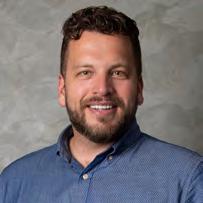
security-friendly or unfriendly daily routine.
A daily office routine can be both positive and negative towards including basic cyber security checks and practices. If we begin and end our day with a few basic cyber security checks that is building a positive daily routine. If we are erratic in such practices that is probably building a negative daily routine and will likely increase the cyber security threat levels.
We want to keep the daily office routines, but we just want to add a security focus in the beginning and at the end of it. It is important to create and build behavioural habits where there is a value. After all, security is a domain that pays off quickly and has enormous wins.
We need to consider cybersecurity as a people challenge and a people-focused domain. Ultimately, it is people who ensure the success of any given project.
Being technically savvy, having the right capability, and implementing the required technology are also key elements to a safe and secure environment.
Cybersecurity experts also need to engage organisations in a conversation that includes the entire team. It is tricky because, in most cases, they are asked to come in after a breach or a complete security breakdown.
This means there may be legitimate feelings of betrayal and trust issues. Even more important is their potential for successful cybersecurity implementation, and this always engages people at the core.
However, it needs to be emphasised that a typical success story does not end here. If we fail to engage with employees, we lose those assets that can help prevent cyber incidents events from happening from the very beginning.
Employees should be able to engage with the security department well before an incident
For some time, industry analysts have been predicting a swing towards citizen development, but the GCC has a significant incentive to make it happen.
In the UAE, the National Programme for Coders has been designed to plug some of these gaps, by creating 100,000 Golden Visas to attract digital talent and building a skills base of 100,000 coders, supported by 1,000 digital companies and 500 internships.
The private sector needs to capitalise on such schemes and do its part. Skills gaps cost economies money in terms of lost growth opportunities. It is time to find a way to create these coders.
One way forward is to create citizen developers. These are non-technical
people who create digital solutions by applying their domain and business knowledge, and other skills, to problems by using low-code development platforms. They can build a rich array of digital workflows and other capabilities to solve real-world issues. They have a distinctive advantage. Typically, they already work in a capacity that allows them to identify a business need. They understand the problem, eliminating the need for requirements gathering, which can not only be a long process, but can fail to capture the scenario, leading to costly missteps. The citizen developer can build their way out of a
One way forward is to create citizen developers who are non-technical people who create digital solutions.
They can build a rich array of digital workflows and other capabilities to solve realworld issues.
Low-code environments are intuitive, so training is not as arduous as when churning out traditional software engineers.
Low-code platforms also have the potential to increase the diversity of workforces.
Business leaders should involve themselves in the citizen development environment.
challenge using intuitive, modular orchestrations that eliminate workaday tasks and deliver real value.
Think of the benefits, once citizen developers have mastered the roster of capabilities open to them through low-code platforms. More problems spotted; more problems solved. Lower costs. Quicker time to market. More value. And all from a band of professionals who are business-first thinkers by definition and who have probably never heard of Python, Java, or C#.
Meanwhile, IT teams can turn their attention to more innovative, strategic projects, adding even more value. And then organisations get an operations model that is beginning to look a lot like innovation in action.
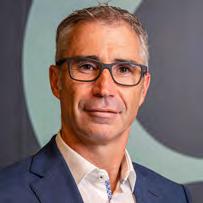
For some time, industry insiders and analysts have been predicting a swing towards citizen development. But the GCC has a significant incentive to make it happen. It would go a long way towards delivering on some of the digital-oriented goals of the region’s economic visions. Building digital societies is a natural step here.
The GCC has a bottomheavy demographic pyramid, with almost half of the UAE’s population, for example, between the ages of 15 and 35. These are
tech-savvy digital natives who will be easily trained in low-code design. But before reallocating the solutions-building role from IT to domain specialists, enterprises will need to undergo some changes in culture.
Low-code environments are intuitive, so training is not as arduous as when churning out traditional software engineers. Problem solvers can confront business challenges without having to translate issues into formal, IToriented documentation like use cases, specifications, architecture designs, database schemas, and pseudocode. All recruiters need to look for in candidates is business knowledge.
Low-code platforms also have the potential to increase the diversity of workforces, thereby improving business outcomes, because a range of individuals with different talents will now have direct access to the tools of problem solving.
The right tools will be vital, but training and support even more so. Organisations must manage lowcode capabilities once they have built their communities of citizen developers. Governance standards should prevent whimsical project initiation by well-intentioned enthusiasts in favour of measured, business-oriented progress by committee. This will ensure value is added at a pace that suits the business.
Business leaders should involve themselves in the citizen development environment, to ensure that IT is behind it and adding value rather than resisting innovation. The enterprise should work towards a scenario where business experts can focus on business issues while IT teams look after access, security, and governance. Forums to share tips and tricks, as well as success stories, are out there. Stakeholders must ensure their low-code citizenry takes part.
Skills gaps cost economies money in terms of lost growth opportunities

Nissan revealed its new Ariya Single Seater Concept of how the all-electric Nissan Ariya powertrain could be used in a single seater racing car chassis. The Ariya Single Seater Concept explores what a future electrified performance style for Nissan could look like. Design cues from the all-new Nissan Ariya all-electric SUV can be seen across the Ariya Single Seater Concept.
At the front of the vehicle is the electrified and illuminated V motion, familiar from Nissan’s current road car design language. At the side view, inspiration has been taken from the Ariya’s fluid and efficient surfaces, exaggerated to a maximum in carbon fibre. Overall, the Nissan Ariya Single Seater Concept describes a form that, as with the Ariya, looks like it was shaped by the air itself.
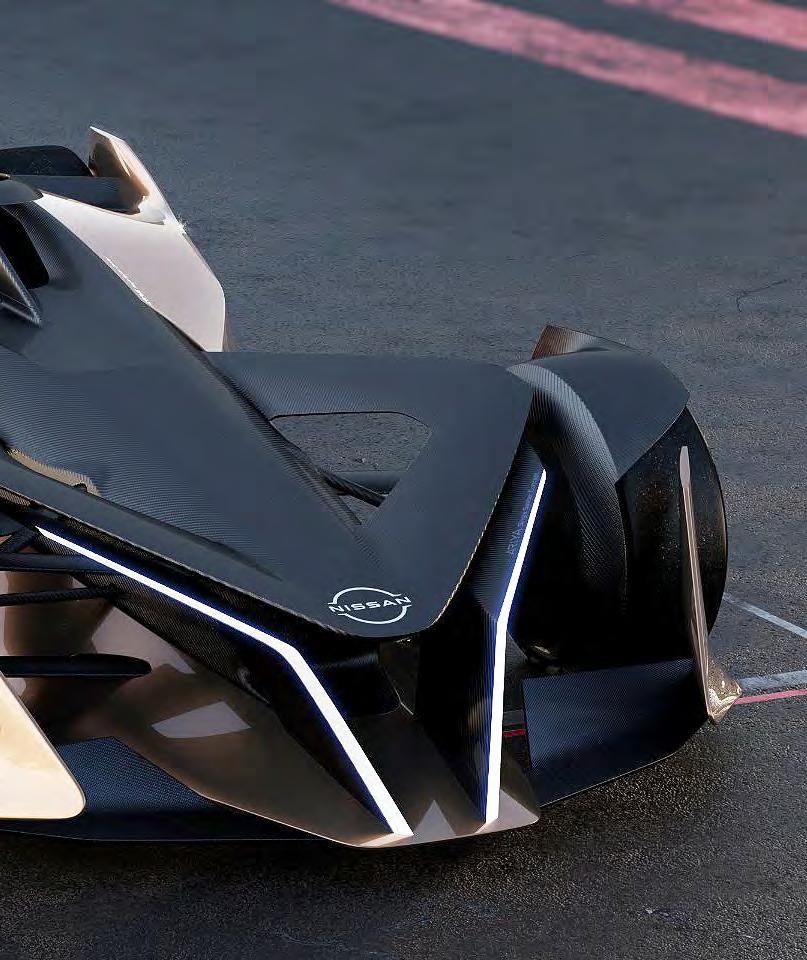
Dubai’s Bluewaters hosted its second edition of drone shows for the Dubai Shopping Festival. Every day until the end of the shopping season, hundreds of drones create breath-taking animations in the evening sky. Ain Dubai, the world’s largest observation wheel, is another spectacular experience to add to your to-do list. Standing tall at 250+M with 48 high-tech, air-conditioned cabins, this favourite offers 360-degree views of Dubai’s skyline and the Arabian sea.
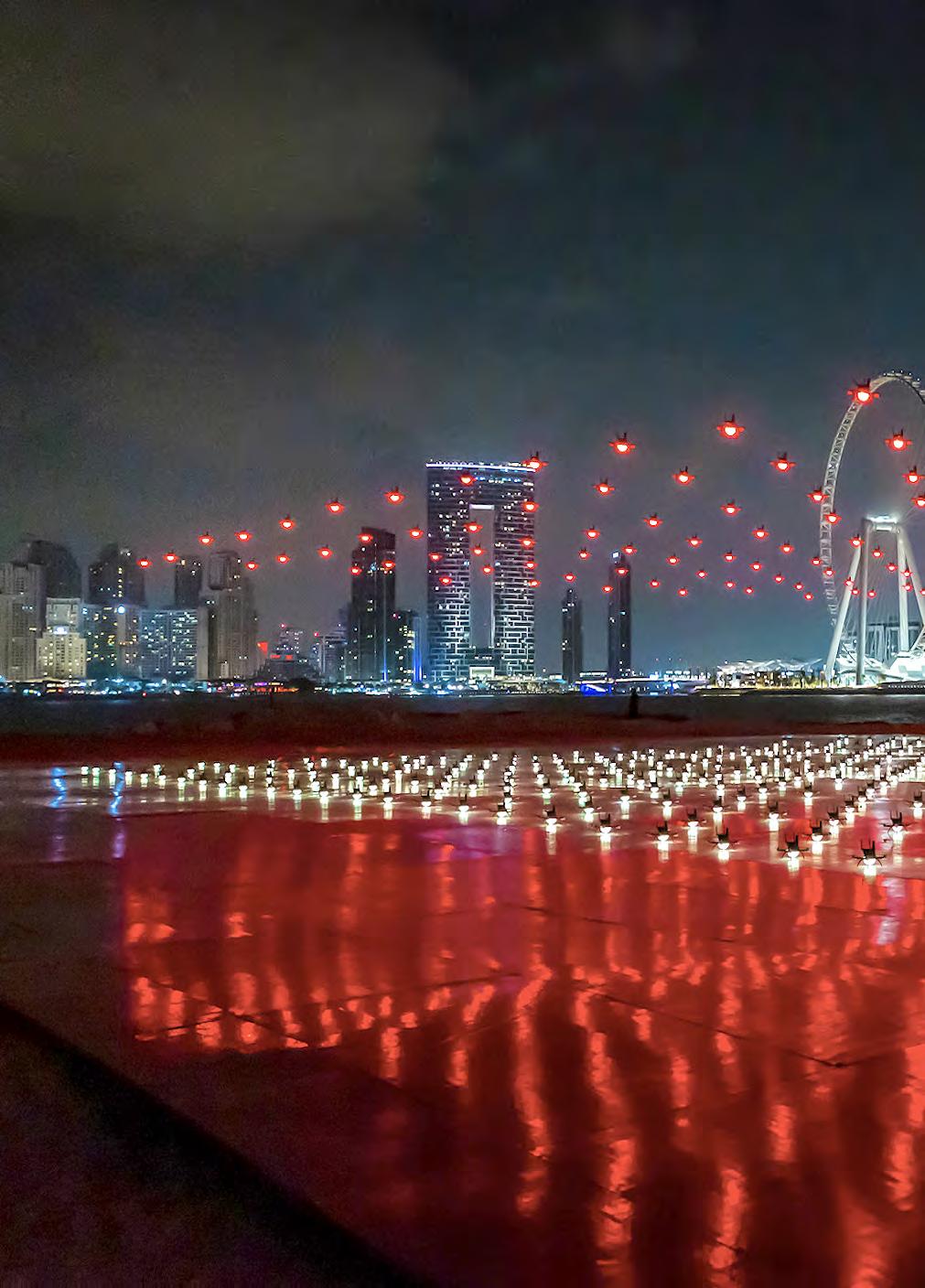
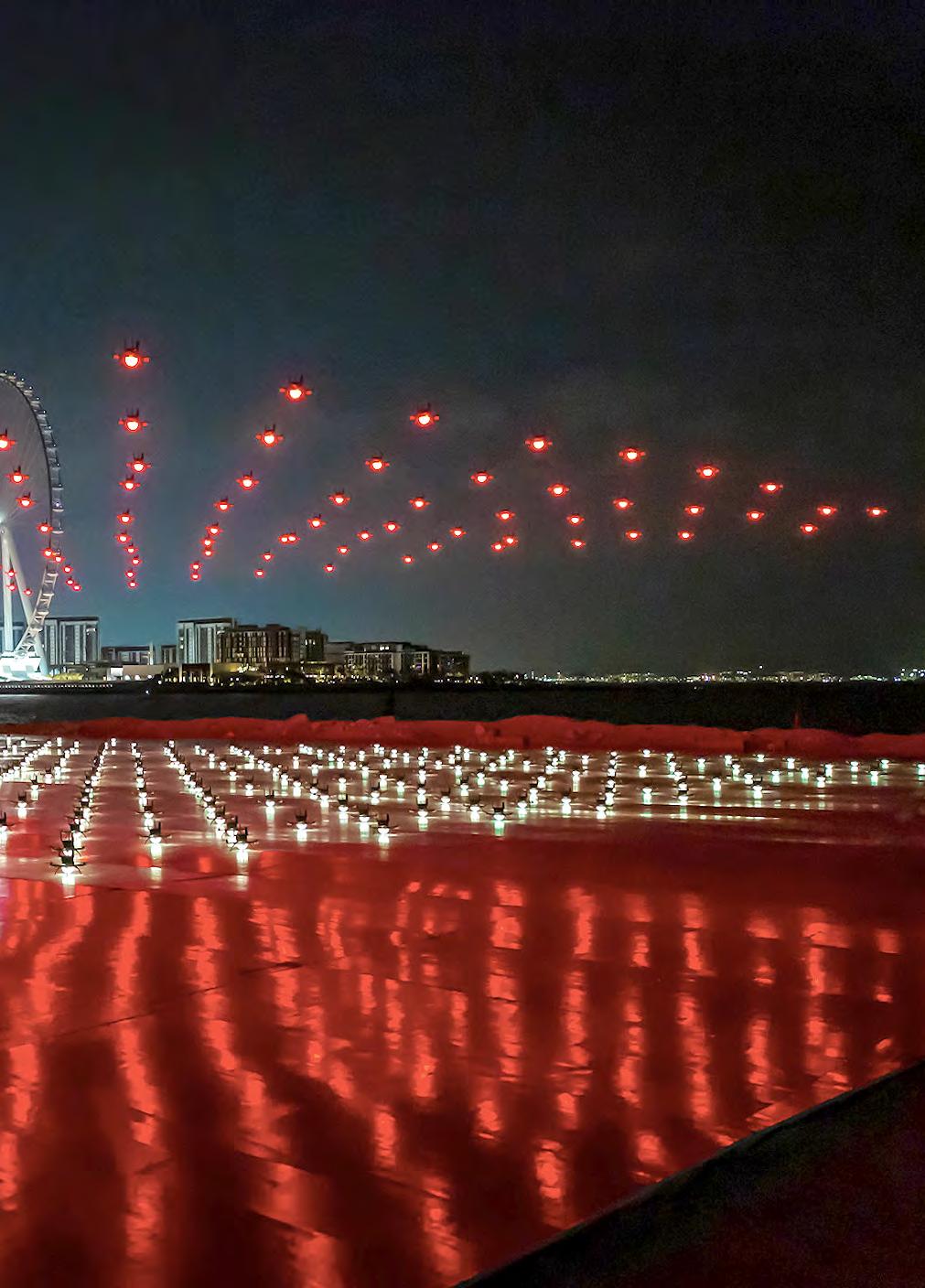
Dubai Chamber recently organised its last quarterly meeting of 2021 with the Business Groups and Business Councils which operate under the Chamber’s auspices, as part of its mission to represent, support and protect the interests of the business community in Dubai.
During the meeting, the Chamber reviewed the emirate’s economic landscape, growth prospects and investment opportunities, and introduced the private sector to the most recent developments in the laws and regulations.
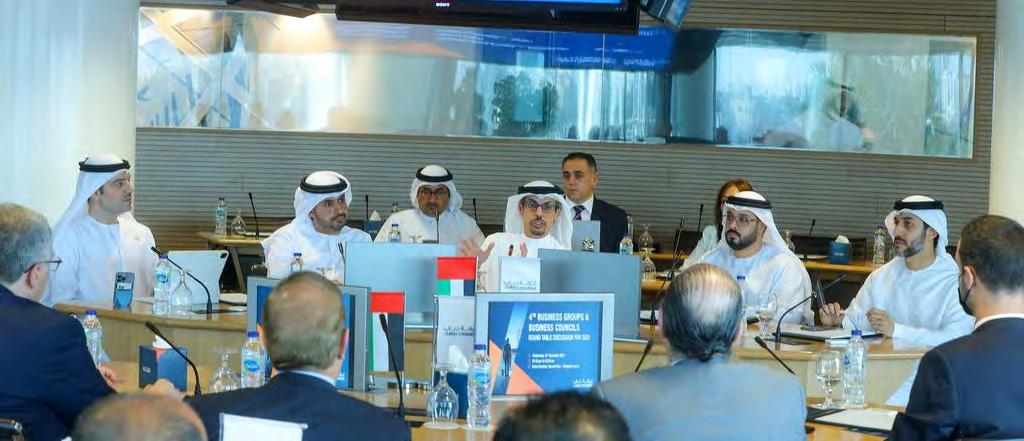
The meeting provided a platform to engage with the business community and exchange views on the latest economic developments, identify the challenges being faced by the private sector, make recommendations to the relevant government agencies, along with exploring future investment opportunities.
To this end, he stressed the Chamber’s commitment to continue to work to strengthen public-private partnerships and to identify opportunities for the private sector through its flagship initiatives such as the Global Business Forum. As the Official Business Partner for Expo 2020, the Chamber has been actively involved in bringing together global business communities and exploring opportunities.
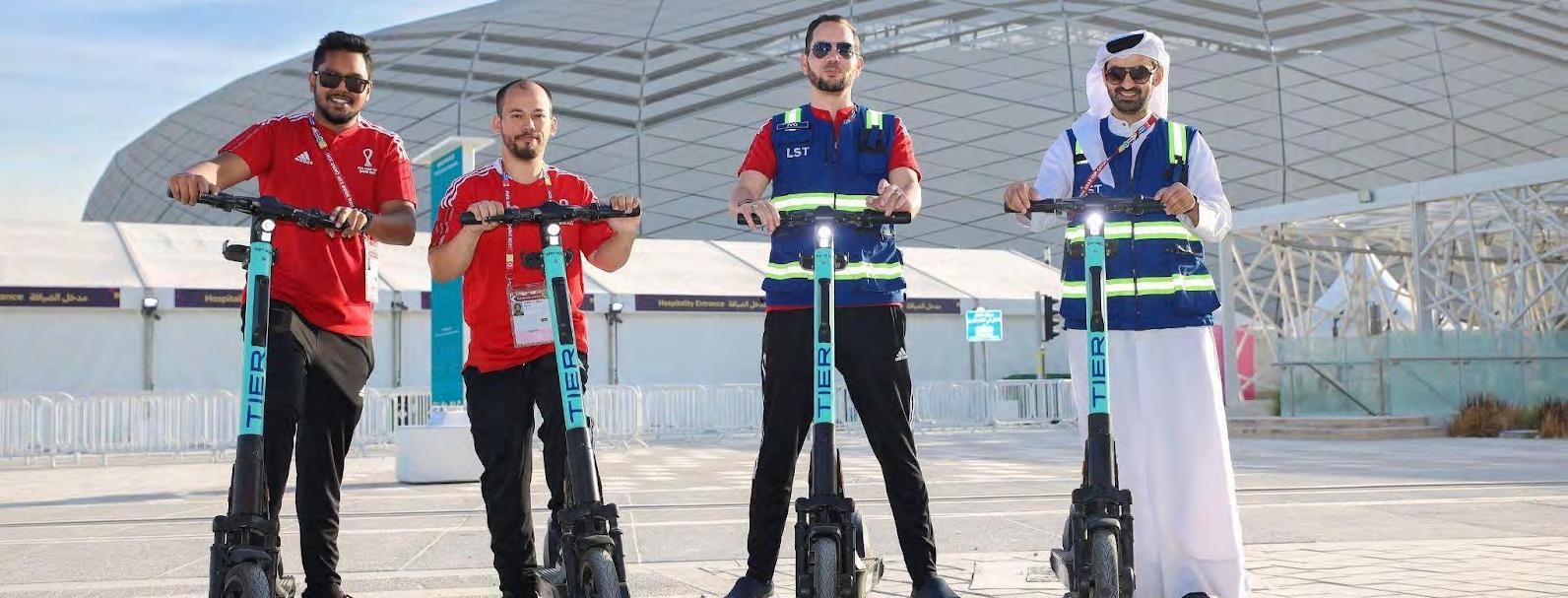
TIER, Europe’s leading shared micro-mobility provider, supplied this year’s FIFA Arab Cup Qatar 2021 with the brand’s environmentally friendly, greener transportation alternative for staff to seamlessly move around the event with zero carbon emissions. This comes as part of the agreement the German company has with the Supreme Committee to support the event’s goals of having a low impact on the environment.
The launch of the e-scooters in Qatar, in March 2021 comes in accordance with the country’s goal to protect the environment by achieving a 25% reduction in greenhouse gas emissions by 2030. TIER is the first micro-mobility provider to be fully climate-neutral, setting the industry standards in sustainability and tech innovation, assisting Qatar with a positive step towards reaching its carbon emissions target.
In parallel to Qatar’s climate change action plan, the country is set to deliver the first Sustainability Strategy for a carbon-neutral FIFA World Cup™ in the history of the event, which is set to take place in 2022. These aims are in line with TIER’s overall goal and mission to lead the way towards seamless, sustainable, safe and accessible mobility for every person.
The new law aims to ensure the efficiency of the labour market enhancing its ability to attract and retain talents
Concerns about the potential for quantum computers to break existing cryptographic standards have inspired a broad search for new alternatives. These post-quantum cryptosystems will need to be robust against attacks by both classical algorithms and emerging new quantum algorithms.
This search has inspired a broad competition organised by the US National Institute of Standards and Technology to identify the most promising candidates from the security and performance perspectives. Last year, NIST whittled down its shortlist to seven finalists and eight alternative candidates from 82 initial proposals.
The competition looks at some of the best approaches for two kinds of applications: public-key encryption, and digital signatures. As part of this competition, researchers explore several families of cryptographic algorithms. The NIST competition’s primary goal is to identify the best algorithm across many families of post-quantum cryptosystems such as lattice-based cryptography, code-based cryptography, multivariatebased cryptography, or hash-based cryptography.
“NIST will probably standardise several candidates from different families of post-quantum cryptosystems in order to mitigate the risks associated to the deployment of post-quantum cryptography,” said Dr Loïc Bidoux, Senior Cryptographer at the Technology Innovation Institute.
Researchers at the Technology Innovation Institute's Cryptography Research Centre, along with their academic partners, have introduced the world's first rank-based cryptography library. Rank-based cryptography is a sub-part of a codebased cryptography. The core ideas arose from research into how error-correcting codes techniques could be applied to cryptography.
There are two critical aspects of implementing these rank-based systems. First, the algorithms need to perform a special kind of arithmetic operations, and second, dedicated decoding algorithms need to be supported.
Researchers had previously developed libraries for these arithmetic operations. But these implementations were not tailored nor optimised for rank-based cryptography. Therefore, the new library outperforms existing libraries on these operations in the specific context of rank-based cryptography. In addition, this library is also the first effort to implement and maintain the dedicated decoding algorithms used by rank-based cryptosystems.

The competition looks the best approaches for two kinds of applications: public-key encryption, and digital signatures
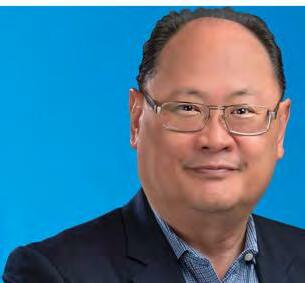
CommScope, a global leader in 4 networks, has announced that its upcoming RDK-based VIP73xx streaming solutions will be included in Netflix’s new DaVinci scaling partner program. Netflix announced the launch of the DaVinci program during the Virtual IBC 2021 Show. The scaling program provides CommScope with the ability to reduce the effort of integration and time-to-market to launch Netflix services on its RDK devices. The program’s aim is to both improve a service provider’s ability to offer more enhanced viewing options and make Netflix more accessible to subscribers globally.
CommScope’s streamers integrate access to multiple popular OTT services in one place. To address broadband-only service subscribers, operators can offer an alternative to a retail streaming device for easy access to content across the various applications. The platform is also capable of providing universal search via a voice remote control, giving the subscriber the ability to search for relevant content.
CommScope’s VIP73xx RDK streaming solutions are expected to be launched in 2022 and designed to enhance a subscriber’s live TV and on-demand content with many popular streaming services. The streamers will have remote management protocols for reducing a service providers’ costs and can be managed by CommScope’s ECO Service Management solutions. This provides service providers with visibility into their subscribers’ home network, and the ability to automate and improve their subscriber’s devices and experiences.
GUILLAUME POUSAZ, Founder and CEO,Checkout.com.With over 200 Million people across the Middle East, North Africa and Pakistan shifting primarily to e-Commerce since the start of the pandemic, Checkout.com has posted record-breaking payment processing growth this year—in addition to expanding its geographic, headcount and acquiring footprint across the region.
According to founder and CEO Guillaume Pousaz, the company posted almost a 75% year-over-year increase in payment processing volumes for the region in December this year, driven primarily by the recent surge in demand for goods and services seen by the multiple local and international merchants that Checkout.com serves.
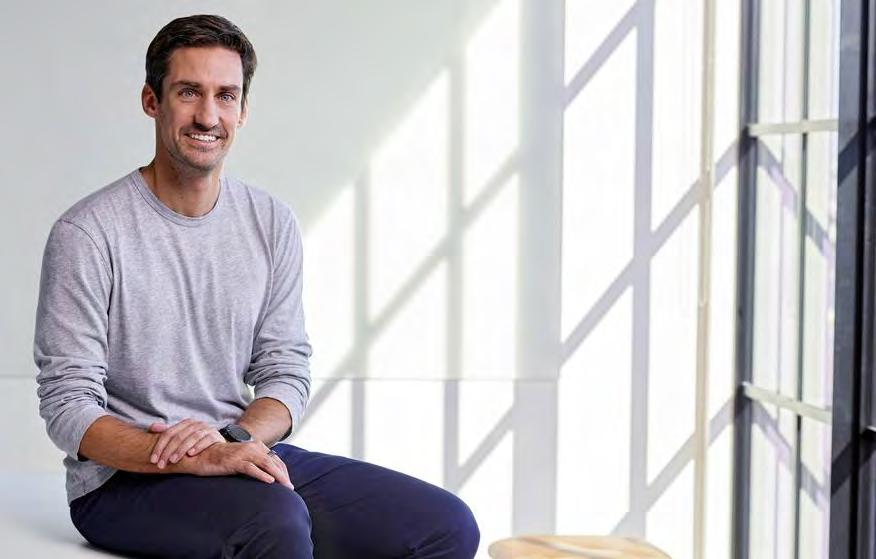
It also supports some of the region’s key players—Careem and Al Shaya, for example—and this year has won business from some of the largest enterprises like Carrefour, Extra, Instashop and Vox Cinemas.
The MENA region is also outpacing larger regions with its adoption of inapp social shopping and buy-now-pay-later. Today, over 75% of consumers in the region report using some form of fintech app, with 81% feeling they benefit directly from the growing fintech sector. As a result, in April this year Checkout.com led the $110 Million Series A investment in one of the region’s fastest-growing buy-now-pay-later start-ups, Tamara.
The platform is capable of providing universal search via a voice remote control
In the latest edition of Marketplace Europe, CNN’s Anna Stewart looks at how companies across the continent are working to fix Europe’s supply chain crisis. From containers grounded at ports due to labour shortages to pandemic-fuelled shortages of basic goods, the globalised nature of trade creates a knock-on effect on supply chains across the continent.
Stewart sits down with John Pearson, the CEO of DHL Express, who explains that global trade has been resilient throughout the pandemic, “Globalisation and connectedness is at an all-time high, trade is 5% higher than pre-pandemic high levels. And in many senses’ globalisation was the salvation of things, not the cause.”

Pearson does not expect things to slow down for a while, he tells CNN, “We say internally that we’ve been in a peak since June last year because our people have been extremely busy since June, July when e-commerce just exploded and started growing at 50% when it would normally be growing at 10-15% so we have been in a constant peak season… I think that we will be exactly like that to Chinese New Year.”
The supply chain has experienced flash points relating to drivers and fuel during the pandemic, but Pearson expects this to change in the near future, “I hope by spring when the pandemic situation maybe is becoming an endemic and is becoming much more localised… If you say what’s the one lever that dictates your world returning to normal, passenger aircraft flying, we take the belly space, we give some of our aircraft back, therein, you’re getting a normalisation of the supply chain, sea containers get back to where the production sites are, ports catch up and so on and so forth.”
Globalisation and connectedness is at an all-time high, trade is 5% higher than pre-pandemic high levels, in many senses globalisation was the salvation of things
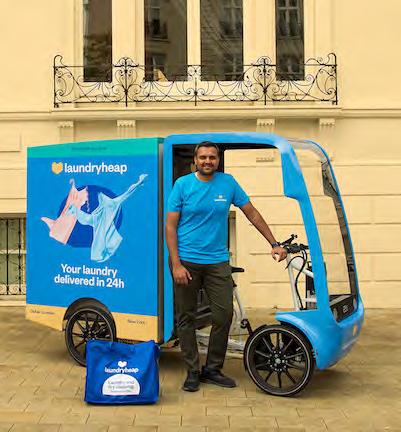
Laundryheap, the world’s fastest-growing on-demand laundry and dry-cleaning platform, has announced its electric bike delivery initiative, seen for the first time in the region.
In line with the company’s commitment to delivering sustainable services, the pilot e-bike will inaugurate the streets of Dubai Downtown and Marina from 15 December 2021. The launch of the electric bike in the region comes from its strong success since Laundryheap’s introduction of the electric bikes in London. The initiative sees a positive sustainability impact as one bike could do 1,000 deliveries covering 3,000 km saving 300 litres of fuel in a month.
Following the introduction of its first bike, Laundryheap aims to introduce its fleet of e-bikes in Dubai and Abu Dhabi within the next year, spearheading its sustainability initiative in the region and further establishing Laundryheap as a leader within the industry for reducing its impact on the environment.
Laundryheap has now fine-tuned it’s washing to minimise energy loss without impacting quality. Some of the other measures in place are replacing plastic bags with cotton laundry bags that are reused multiple times by the customer, use of biodegradable detergents to improve water treatment and the quality of wastewater. Also additionally moving over to central boilers reduce energy demands and help recycle steam in the drying process.
Careem is expanding the groceries offering on its Super App by launching Quik, a new ultrafast grocery delivery service that offers customers supermarket competitive prices across a range of everyday grocery items 24x7 in as little as 15 minutes

Quik uses a dense network of hyperlocal dark stores and advanced fulfilment and inventory management tech to prepare orders in under two minutes and make item replacements a thing of the past. Warehouse infrastructure will be automated over time with the support of Careem’s Kiwibot partnership which uses robotic carts to speed up the process even further for Careem Captains.
Through Careem Quik’s dark store network, Careem controls the entire supply chain process, from ordering and fulfilment, to managing inventory and delivery. When an order is placed on the app, order pickers called Quikers collect and process the order in dark stores that are fully optimised for rapid fulfilment, before handing them off to dedicated Quik delivery Captains.
Through Careem Quik’s dark store network, Careem controls the entire supply chain process
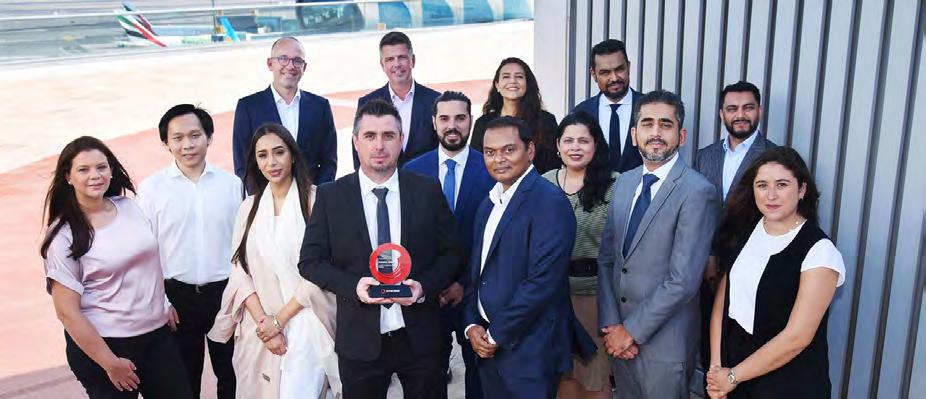
Emirates’ marketing team has been recognised by Sitecore, one of the world’s leading digital experience platforms, for Best Use of a Customer Data Platform. The award was presented to Emirates at the recent edition of Gitex, Dubai’s technology trade exhibition, for demonstrating excellence in the delivery of its digital customer experience utilising the Boxever platform.
Emirates was selected from amongst 110 large service organisations, based on its bestin-class CX and digital capabilities. Over the past four years, Emirates has invested in CDP solutions such as Boxever, acquired by Sitecore in March 2021, utilising it in conjunction with its proprietary marketing data platform to deliver to the complex needs of customers. Their combined capabilities reflect the close collaboration between the Group’s internal marketing team and Boxever, who have maintained a steady focus on delivering to a demanding customer agenda.
Recognising leadership in innovation and the top digital transformation initiatives, SAP has announced the winners of its SAP Quality Awards for Customer Success 2020. Winning organisations and their channel partners were across three categories: Business Transformation, Fast Delivery, and SAP S4HANA Move.
The ceremony started with a tour of the 900-meter square SAP House which showcased innovative customer experience solutions from SAP and its partners. This included an immersive tunnel, an interactive gamification of equestrian sports, the PODway platform for people of determination, and SAP Customer Checkout for retail innovation.
In the Business Transformation – Middle East North category, winners included Basamh Trading and Industries Group in Saudi Arabia with LABS, the Bahrain National Bureau for Revenue with Invenio Business Solutions Limited, and Engro Corporation Limited in Pakistan with EY Ford Rhodes – which is Engro’s second consecutive win in the MENA region.
In the Fast Delivery category, winners included the Saudi Arabia Ministry of Finance with Albilad Arabia Pvt Company Ltd, Umm Al Houl Power in Qatar with Kaar Technologies, and K-Electric Limited in Pakistan with Tallymarks Consulting.
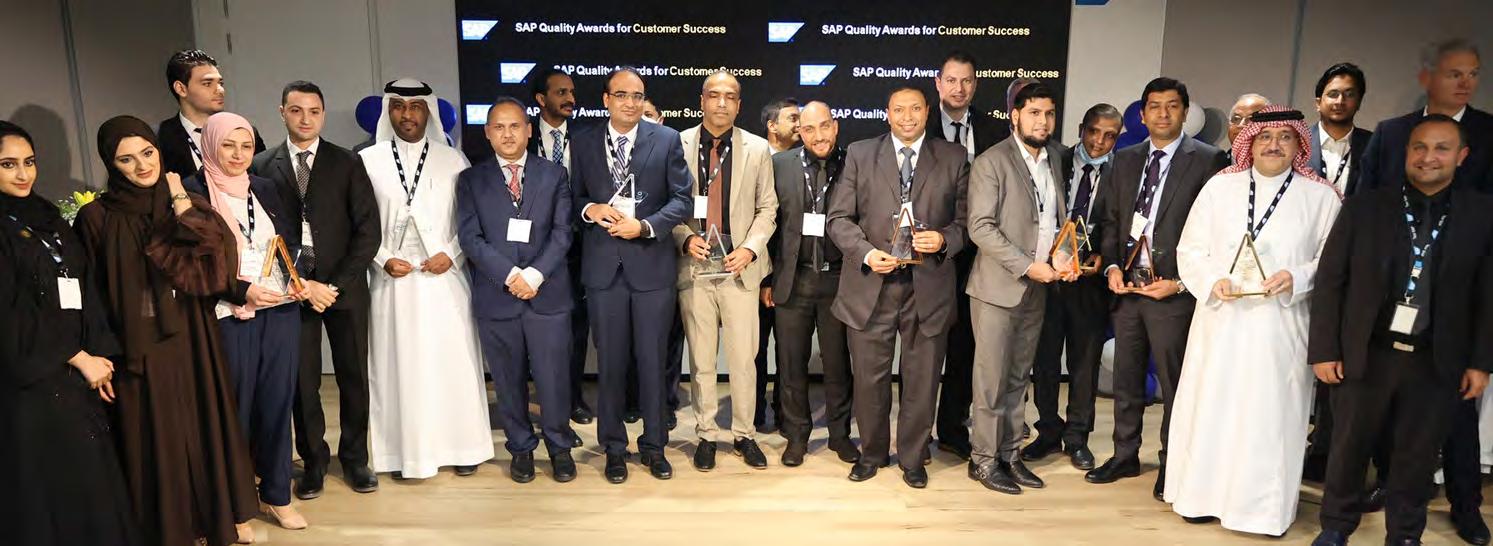
Winning organisations were across Business Transformation, Fast Delivery, SAP
Emirates was selected from 110 large service organisations based on its best-inclass CX and digital capabilities
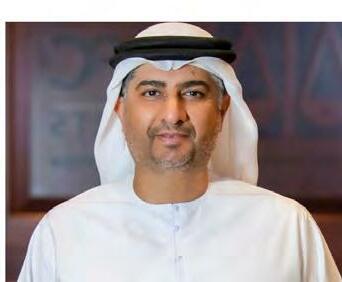
The Dubai International Financial Centre - DIFC Courts has officially confirmed 100% of internal processes and customer-facing services as now operating fully digital. Following the launch of the Dubai Paperless Strategy by His Highness Sheikh Hamdan Bin Mohammed Al Maktoum in 2018, the DIFC Courts accelerated the integration of all services into its extensive digital infrastructure.
Announced the same week as the launch of the Paperless Strategy, in February 2018 the DIFC Courts initiated the introduction of paperless trials, implementing the region’s first Courts eBundling system. The secure cloud-based technology allows court documents to be uploaded from anywhere in the world, enabling judges, lawyers, and courts staff to access case information in various formats, across multiple locations, and share with numerous users.
During the pandemic the DIFC Courts also injected fresh digital systems for the registration of Wills; the new video conferencing facility can be accessed via a smartphone, tablet, or desktop device. This new digital offering is part of the existing Virtual Registry, which allows those living overseas to create and register a DIFC Courts Will. Investors, former and current residents can access it from anywhere in the world and be connected, via video link, to a compliance officer sitting in Dubai.
Among the many technologies the Courts has pioneered to re-engineer and increase access to justice, is the region’s first eRegistry in 2009, as well as digitally integrated courtroom and state-ofthe-art eCourt Management System - CMS in 2017.
Central banks will likely reduce their emergency monetary accommodation, as the economic effects of the pandemic increasingly subside. However, the tighter policy is not expected to prevent positive equity market returns, according to UBS Global Wealth Management’s Chief Investment Officer Year Ahead 2022 outlook.
The report’s core recommendations for the year ahead include:
l Buy the winners of global growth. Economic growth will likely remain an above trend for the first half of 2022, benefiting cyclical, including Eurozone and Japanese equities, US mid-caps, global financials, commodities, and energy stocks.
l Seek opportunities in healthcare. Although growth is set to be strong in early 2022, favouring cyclical sectors, a slowdown over the course of the year should start to favour more defensive parts of the market, such as healthcare.
l Seek unconventional yield as interest rates, bond yields, and credit spreads remain low by historical standards. US senior loans, synthetic credit, private credit, and dividend-paying stocks, look attractive.
l Position for a stronger US dollar as a combination of Fed tapering and slowing global growth favour the greenback, relative to currencies bound to looser monetary policies, such as the euro, yen, and Swiss franc
MARK HAEFELE, Chief Investment Officer at UBS Global Wealth Management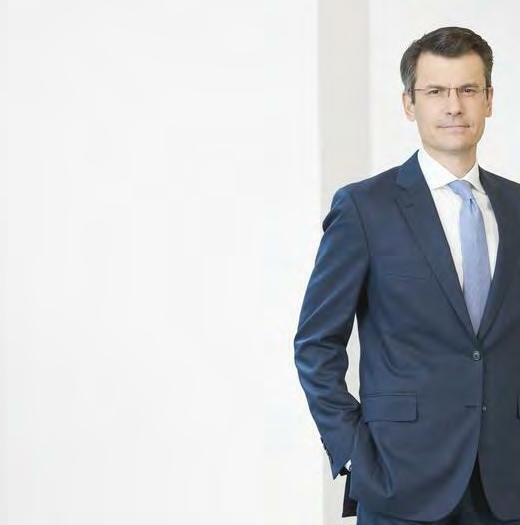
Attaining net-zero is expecteds to require global investment of $50 Trillion for each decade until 2050
In May 2021, DIFC Courts added the final pieces to its full paperless status by acquiring the qualified electronic seal solution
Venture Souq has operations in UAE, Egypt, Saudi Arabia and has invested in over 200 companies worldwide
GCC-based venture capital firm VentureSouq announced the launch of its MENA FinTech Fund I, the region’s first sector-specific fund focused on FinTech across the Middle East and North Africa region and Pakistan. The $50 Million VentureSouq fund invests in early-stage FinTech and SaaS companies and focuses on key subsectors including payments infrastructure, alternative credit, digital banking, PropTech, InsurTech and personal financial management, working closely with innovative regional entrepreneurs that are disrupting financial services.
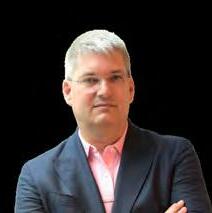

VentureSouq MENA FinTech I is backed by regional powerhouses including Jada Fund of Funds program and Saudi Venture Capital Company, Bahrain’s Al Waha Fund of Funds, UAE’s DisruptAD, ADQ’s venture platform, and Mubadala Investment Company, as well as multinational conglomerates such as OFC, the Middle East investment arm of The Olayan Group.
The Fund has been actively deploying capital into start-ups across MENA and Pakistan, including regional buy now pay later Tabby, Saudi-based B2B marketplace Sary and PropTech platform Huspy. UAE-based investments include Baraka, Flexxpay, FinTech infrastructure company NymCard and digital bank Verity and in Pakistan, digital ledger platform Creditbook, e-commerce financing platform PostEx and salary advance startup Abhi Finance.
In addition to its scheme for directly reducing its emissions, Virgin Mobile Middle East and Africa launches a new app feature that enables its customers to offset the carbon footprint generated from their mobile phone usage. The voluntary contributions by customers will be matched or topped up by the local operating companies in the UAE, Saudi Arabia, Oman and Kuwait, in line with the mobile company’s ongoing efforts to achieve carbon negativity.
The feature which is now available in the UAE and soon to be rolled out in Saudi Arabia, Oman and Kuwait, invites customers to offset carbon emissions through a voluntary donation with every purchase through the Virgin Mobile app. The local operating companies will then further contribute and invest the total amount in local offset projects and initiatives.
Independent research has revealed that sustainability commitments by companies are increasingly becoming a key consideration in driving purchasing decisions
Emirates NBD, a banking group in the MENAT region, announced its association with ASEAN Financial Innovation Network, as a member and as an industry partner to support its global fintech registry, ChekFIN.
Created in collaboration with Boston Consulting Group FinTech Control Tower and Temasek-founded Affinidi, ChekFIN was officially launched at the Singapore FinTech Festival 2021. Scheduled to go live on 01 December 2021, the registry will provide a decentralised, open standard, and trust-based solution enabling and empowering financial institutions to reduce the amount of time spent searching for and assessing a suitable partner firm.
The platform includes unique features such as a comprehensive taxonomy and tagging system to facilitate easy search, easy access to aggregated and relevant information on firms in a single place. A key feature of the platform is the use of Verifiable Credentials, cryptographically secure digital certificates, to assess the digital reputation and credibility of various FinTechs. Emirates NBD is one of the ten global pioneer industry partners working with APIX to issue the first set of VCs.
The presence of a global registry where consolidated information on vetted FinTechs is readily available, will benefit financial institutions by bringing greater connectivity in the Fintech ecosystem, thus enabling smoother and more reliable collaborations.
MIGUEL RIO TINTO, Group Chief Information Officer, Emirates NBD.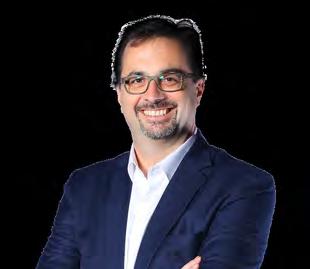
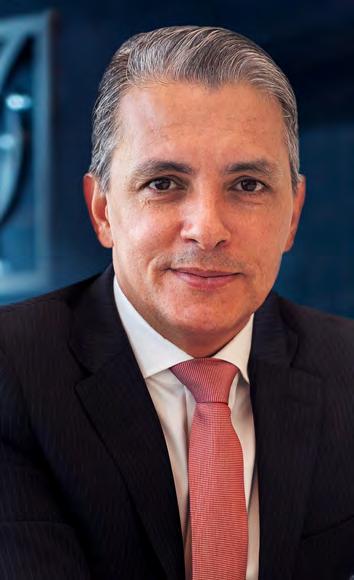
Companies in the Middle East are showing varying levels of adoption of digital technologies such as cloud, edge computing, artificial intelligence, and Internet of Things, according to new research from Accenture and Microsoft. The overwhelming majority of enterprises 87% expect 5G to significantly impact their business, with 61% planning to invest in 5G campus networks. Accenture and Microsoft commissioned a study titled, Unfolding the next growth chapter in the Middle East, which included a survey of 257 senior executives of Middle East enterprises. It revealed that most companies are committed to investing in digital technologies including cloud, edge computing, AI, IoT and next-generation networks like 5G. These new technologies hold huge promise for supercharging business outcomes—but only if they are harnessed in the right way.
According to the study, 77% of enterprise executives say they are planning to invest an incremental 3-10% of their Information and Communications Technology budget on advanced networks like 5G in the next three years. Further, 64% of respondents from the oil and gas industry and 45% from manufacturing prioritise near-term 5G campus network investments. Companies see 5G as not merely an incremental version of 4G, LTE but as a catalyst to accelerate their digital transformation and a key enabler of innovative use cases.
The study revealed that a small number of high-performing companies, or Tech Leaders, are on track to deliver more value than their peers in the next three years. Tech Leaders expect revenue to grow 2.1x faster, expand margins 1.6x higher and are 16% more likely to see their 5G and network investments result in new product and service innovations – driving superior value creation for their business.
77%
say they are planning to invest an incremental 3-10% of their ICT budget on advanced networks like 5G in next three years

CallisonRTKL, a global architecture, design, and strategy firm, is proud to announce that 360 Kuwait has won three awards: the 2021 ICSC Gold Global Award for Design and Development, the Mena Shopping Centre and Retailer Gold Award for Renovations and Expansions, and the RLI International Shopping Centre Renovation Award.
360 Kuwait is an expansion of 360 Mall which opened in 2006, also designed by CRTKL. The mall expansion connects to the original mall by bridge and is composed of a new mall concourse, a Grand Hyatt Hotel and the Rafael Nadal Tennis Academy.
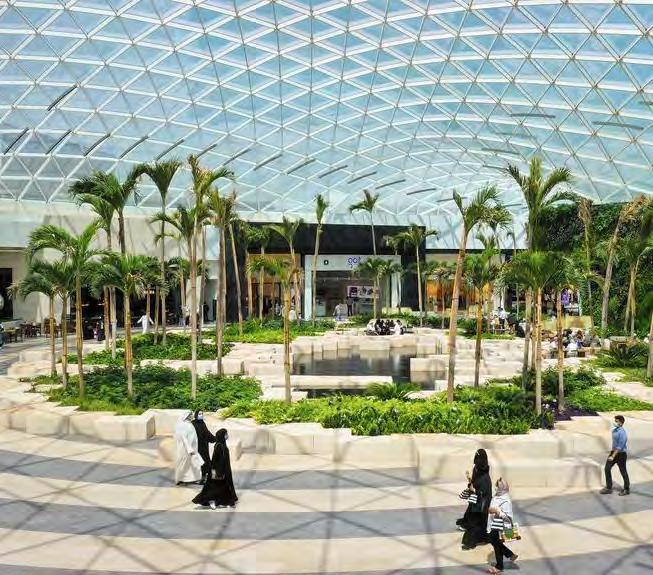
360 Kuwait consists of 260 retail stores, 300 guest rooms, 17 tennis courts, 15 movie screens, and 13 major anchor spaces. The strategic expansion includes an additional 20,250 square meters of retail space, and a five-star Grand Hyatt, the largest multi-purpose arena in Kuwait, and the second Rafa Nadal Tennis Academy in the world. This exclusive and unique destination integrates retail, sport, and entertainment in a luxurious environment.
Al Ansari Exchange, the UAE-based foreign exchange and worldwide money transfer company, and the Bill and Melinda Gates Foundation pledged $10 Million through the foundation’s matching programme to support healthcare humanitarian programmes in the Middle East and Africa region.
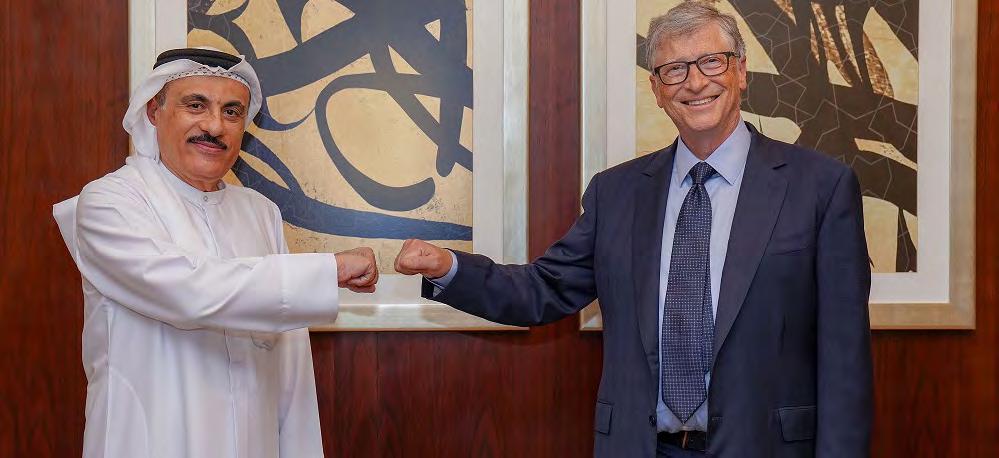
This announcement comes during a meeting held in Dubai between Bill Gates, the co-chair of the Gates Foundation and Mohamed Ali Al Ansari, the chairman of Al Ansari Exchange to discuss the importance of supporting the global efforts to improve healthcare and the important role philanthropists play in powering such programs in different parts of the world.
The focus of this pledge will be to reduce inequities in health by developing new tools and strategies to reduce the burden of neglected tropical diseases NTDs, which affect more than 1.7 Billion of the world’s population residing in low-income communities in the Middle East, Africa and Asia.
Funding will be directed toward the Reaching the Last Mile Fund, a multi-donor initiative launched by His Highness Sheikh Mohamed bin Zayed, Crown Prince of Abu Dhabi and Deputy Supreme Commander of the Armed Forces and managed by The END Fund.
Al Ansari Exchange, Bill Melinda Gates Foundation pledge $10MThe focus of this pledge will be to reduce inequities in health by developing new tools and strategies
Abu Dhabi received the first global shipment of AstraZeneca’s Evusheld, long-acting antibody medication, after gaining Emergency Use Authorisation from the UAE’s Ministry of Health and Prevention. The longacting antibody medication is designed to prevent severe infection and death amongst immunocompromised patients.
This medication will be in addition to the existing Covid-19 medications that are already available within Abu Dhabi and the UAE to ensure the continuity of world-class care in the country.
Under the leadership of the Department of Health – Abu Dhabi, the first doses of Evusheld have arrived in Abu Dhabi on December 20th following collaboration of key partners including Rafed, the UAE’S Primary Group Purchasing Organisation and the procurement arm of the UAE, along with Etihad Cargo, the national cargo carrier of the Emirate of Abu Dhabi, in addition to AstraZeneca, the British-Swedish multinational pharmaceutical and biotechnology company, and Abu Dhabi Airports Company.
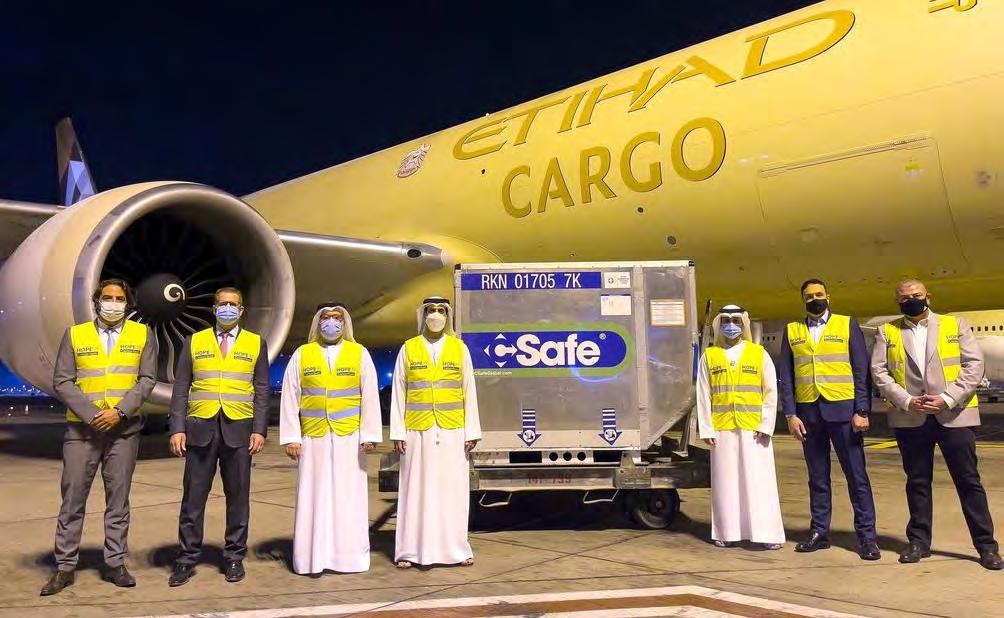
The breakthrough medication will be stored at Rafed’s Distribution Centre, the region’s largest cold-chain storage facility, and then distributed from there to various destinations.
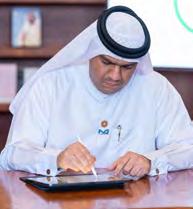
Mohammed Bin Rashid University of Medicine and Health Sciences has signed a Memorandum of Understanding with Dubai Police, with the goal of strengthening partnerships in scientific, research and specialised disciplines to enhance research outcomes in the Emirate and health outcomes for the society.
The MoU was signed by His Excellency Major General Dr Ahmed Eid Al-Mansoori, Director of the General Department of Forensic Evidence and Criminology and Dr Amer Sharif, ViceChancellor of MBRU, in the presence of officials from Dubai Police and key members of MBRU.
The agreement covers several topics, including initiatives to develop areas of mutual interest particularly cooperation in research, training, and capacity-building. Additionally, the initiative will assist Dubai Police personnel and their families

who wish to complete their studies at MBRU.
The MoU will also facilitate the identification of action plans, responsibilities, timeframes, and outputs for the initiatives and projects agreed upon between the two parties.
Sanad, the global aerospace engineering and leasing solutions company, wholly owned by Mubadala Investment Company, has signed a Memorandum of Understanding to collaborate with Next50, a joint venture between ADQ and G42, to develop technology-driven services solutions for the industrial services sector.
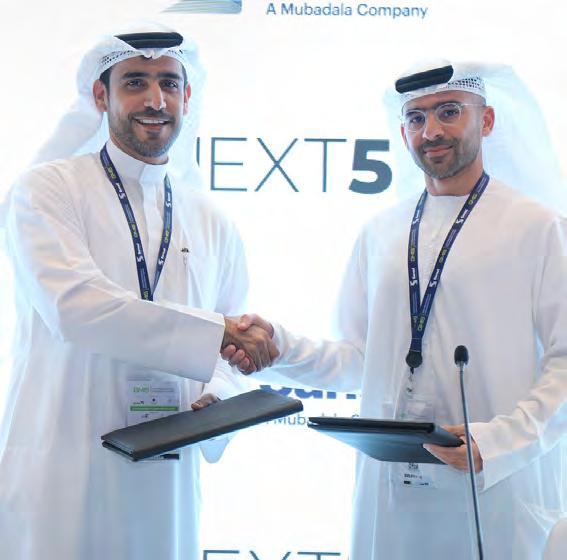
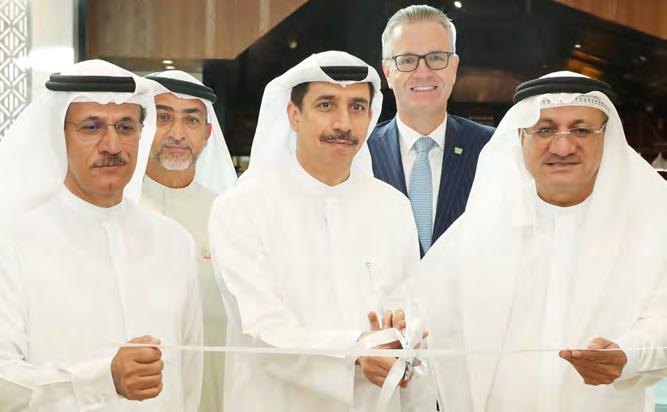
The MoU will see the two companies working together to explore next-generation solutions based on Internet of Things, data-analytics, machine learning and artificial intelligence with the aim of boosting efficiency across multiple industries.
The signing between the two companies is fully aligned with the theme of GMIS 2021, Rewiring Societies: Repurposing Digitalisation for Prosperity.
Commercial Bank of Dubai announced the opening of its Digital Lab at the Dubai International Financial CentreDIFC Innovation Hub, the region’s largest innovation ecosystem.
The CBD Digital Lab was inaugurated by CBD Chairman, HE Humaid Alqutami, CBD Vice Chairman, HE Sultan Saeed Al Mansoori, and the Governor of DIFC, HE Essa Kazim. Senior Executives from CBD including Chief Executive Officer, Dr Bernd van Linder; and DIFC Authority including Chief Executive Officer, Arif Amiri, attended to mark the occasion.
The CBD Digital Lab is the first initiative by a bank to establish a research and development facility in the DIFC Innovation Hub. The objective is to create a collaborative ecosystem in the FinTech sector by fostering innovation and supporting integration between financial institutions and FinTech start-ups.
During the inauguration, the guests took a tour of the lab and learnt more about how CBD’s Digital Lab backs the ambitions of the UAE’s digital and FinTech ecosystem. The guests were also shown the CBD Think+Pod, a space which provides DIFC residents and visitors a great opportunity to collaborate and ideate, as well as conduct private meetings in the unique Think Pod.
The CBD Digital Lab is the first initiative by a bank to establish a research facility in the DIFC Innovation Hub
Sanad signs MoU with next50 to develop technology-driven solutions for industrial sector

Ericsson and King Abdullah University of Science and Technology have announced an initial three-year research and development partnership focused on three research projects aimed at advancing telecommunication networks with cutting edge technologies. The partnership aims to understand the key features and requirements of next-generation communication systems.
With current optimisation algorithms often entailing considerable computational complexity and processing overhead, Ericsson and KAUST will utilise machine learning for frequency-selective wireless channels, with the aim of using deep learning to solve channel estimation and resource allocation problems for massive multipleinput multiple-output systems.
Moreover, as future communication networks will have more emphasis on high data rates, low latency, and high security, Ericsson and KAUST will look into transparent and flexible intelligent surfaces for 5G and beyond enhanced communication.
The partnership will also focus on 6G capabilities moving to higher frequencies such as Terahertz for higher data rates. In particular, Ericsson and KAUST researchers will study backup solutions for THz communications to guarantee uninterrupted high rate backhaul in 6G dense networks.
CallisonRTKL, a global consultancy specialised in architecture, design and technology, has unveiled its role in the design of mega-project, Riyadh Front, a new retail destination in the heart of Saudi Arabia’s capital. The development, by Kaden Investment Company, aids the economic, cultural and societal pillars of the esteemed Saudi Vision 2030 in attracting modern, local, regional and international brands that contribute to the economy through modern trade.
Located on King Khalid International Airport road, the retail development is built on more than 180,000 sqm and includes top brands and restaurants, along with a premium movie theatre. The first-of-its-kind outdoor retail resort integrates smart architecture and human-cantered design to host innovative modular offices, stunning green spaces, and water features.
This is in addition to world-class shopping, hospitality and dining experiences. Riyadh Front has been designed to engage visitors and create excitement with separate luxury, wellness, entertainment plazas as well as a central plaza.
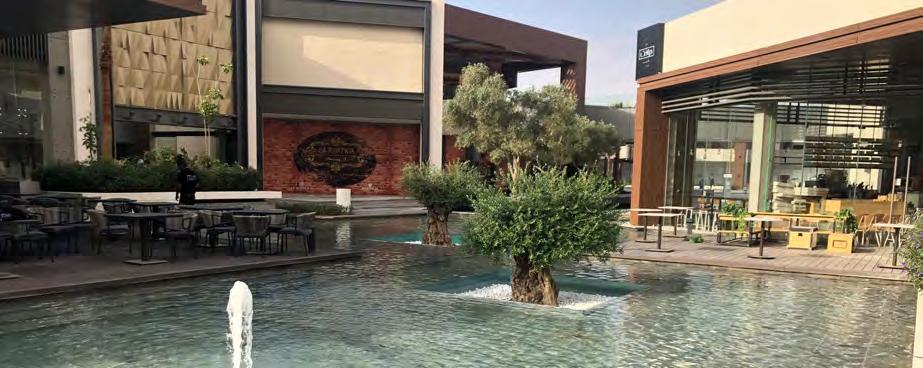
Riyadh Front has been designed to engage visitors and create excitement with luxury, wellness, entertainment plazas as well as a central plaza
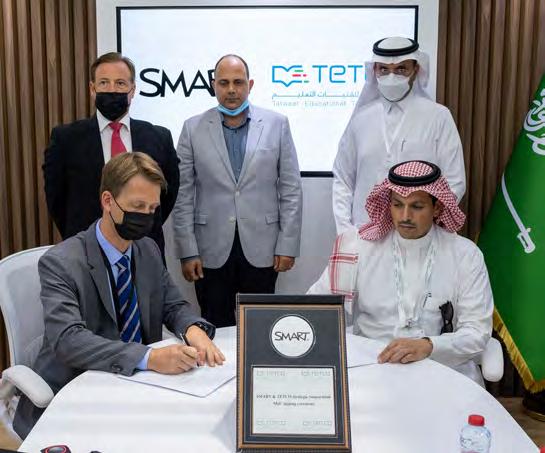
Smart Technologies, a global educational software leader specialising in collaboration touch and interactive technology solutions, has amplified expansion initiatives across the Middle East and North Africa after signing a strategic partnership agreement with Tatweer Educational Technologies, the technology arm of the Saudi Arabia Ministry of Education.
With TETCO providing high-quality education and communication digital and technology solutions to the public and private sectors, the multi-year partnership will see the two entities collaborate on promoting SMART learning solutions throughout the Kingdom to drive TETCO’s ambitious EdTech digital transformation agenda.
Smart Technologies also boosted channel support for regional customers by expanding its Middle East team with the twin appointment of Ihab Jabr as Business Development Representative and Nadia Baraghiti as EdTech Consultant.
Dubai Industrial City, one of the region’s largest manufacturing and logistics hubs, has announced that WenChao Group is investing more than AED 735 Million to construct a world-class food manufacturing and distribution facility in the business district.
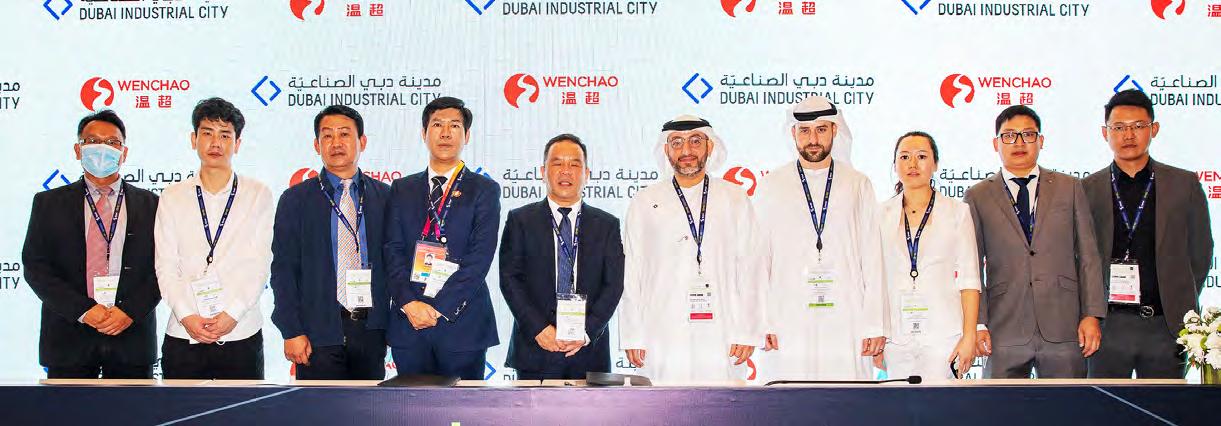
The first phase of the WenChao Logistics Hub Dubai is scheduled to begin in the first half of 2022, comprising an integrated warehouse, distribution centre, food processing and manufacturing plant for semi-cooked and braised food. The more than 950,000 square feet factory will incorporate the latest technology to support a predicted food production turnover worth up to AED500 Million annually.
WenChao Group also owns the WenChao Green Farm in Dubai’s Nazwa desert region since 2012, where they grow approximately 50 varieties of vegetables across 80,000 square feet. They employ ecologically friendly agricultural methods, swapping out chemical pesticide or fertiliser for organic manure and manual weeding.
The company aims to venture into vertical farming in 2023 by taking advantage of cutting-edge agricultural technologies to overcome challenges posed by the natural desert environment. The second growth phase will see the construction of a 4 Million square feet vertical farm set for completion in 2025.


Similar to a self-driving vehicle, the N.THING Cube aims to reduce the farming sector’s human element and rely on advanced technology to produce quality crops.
BY ARUN SHANKARPresently, agricultural products have been produced in centralised protocols and due to dependency on location and climate, it is managed in a centralised and grower-driven manner. N.THING’s Cube is an indoor modular vertical farm that does not affect or change the surrounding environment.
Engineered to reduce using earth resources, it enhances the production of clean and safe yields that are free from pollution and pesticides and cultivated in a sustainable environment. By saving energy, and creating a sustainable ecosystem, Cube is elaborating a decentralised farming solution that can
be set up in any city without relying on imports and logistics for easy access to a traceable food supply.
N.THING’s key concept, called Farm as a Product, had won the Best of Innovation award at CES 2020, and recently received an honouree award at CES 2022 Innovation Awards for Sustainability, eco-design, and smart energy.
N.THING launched operations in the UAE in 2019 after completing its proof of concept in Abu Dhabi with Smart Acres, the UAE’s latest vertical farm, with the mission to improve food security, develop farming capabilities, and provide a solution to potential socioeconomic threats such as the pandemic and climate limitations. Utilising the PoC process; four vegetable types were produced; then discovered the capacity to produce crops of up to 12 tons annually.
N.THING is currently undergoing tests to begin operations in Asia, India, Taiwan, and Singapore. Through the use of the Cube, N.THING’s vision is to eventually provide global food security and contribute to the food value chain using the decentralised farming software.
Currently, N.THING holds various partners from online, offline, and commerce players in Korea. N.THING generates revenues by selling crops, farms, and solutions. The Korean partnerships include Emart, a leading retailer in Korea, and value chain partnerships Cube Icheon. This is located in Emart Fresh Centre’s parking lot, the main logistics centre of Emart covering Seoul and Kyungki area in South Korea, and is directly distributed to Seoul and Kyungi branches, reducing footprint and food miles.
N.THING’s individual partners include high-end restaurants and fine diners in Korea. N.THING has a goal for the Middle East to adopt a similar model where retail and individual partners implement a
 LEO KIM, N.THING CEO.
LEO KIM, N.THING CEO.
The OS provides complete control over the growing process and is designed to add smart solutions.
sustainable and local farming solution.
N.THING’s end customers are from diverse industries, including food manufacturers, logistic companies, and retail customers. A technician from South Korea visits the end-customers site to work on the installation and implementation of the solution and ensures that the customers are provided with thorough training on how to operate the N.THING Cube.
The training provided also includes how to fully control the growing environment, growth duration, and product quality with IoT technology and dedicated OS. In order to facilitate the farm, N.THING requires the end customer to either source the container locally or opt to import the container from South Korea.

N.THING’s centralised dashboard provides its customers with an operating system and full access to the Cube Farm. Although it is a cloud-based OS system, stability is the priority for cultivating yields in the Cube hardware. The software is also designed to


The end goal is to achieve 100% automation of the farming process.
N.THING’s concept, called Farm as a Product, won the Best of Innovation award at CES 2020.
N.THING’s farming system has a growth pattern similar to that of an autonomous vehicle.
N.THING’s centralised dashboard provides customers with an operating system and full access to Cube Farm.
While it is a cloud-based OS, stability is the priority for yields in the Cube hardware.
effectively detect emergencies, and swiftly switch to emergency mode, whether it is due to a loss of power, AC breakdown, or water suspension.
Cube OS will automatically switch to avoid downtime and continue functioning at full capacity. Overall, the OS governs the farm and provides customers with full access to monitor in realtime.
N.THING’s farming system has a similar growth pattern to that of an autonomous vehicle. Similar to a self-driving vehicle, the N.THING Cube aims to reduce the farming sector’s human element and rely on advanced technology to produce quality crops.
The Cube is fully managed by IoT, cloud computing, and stability data mining, and the OS and dashboard allow customers to grow crops professionally regardless of their agricultural
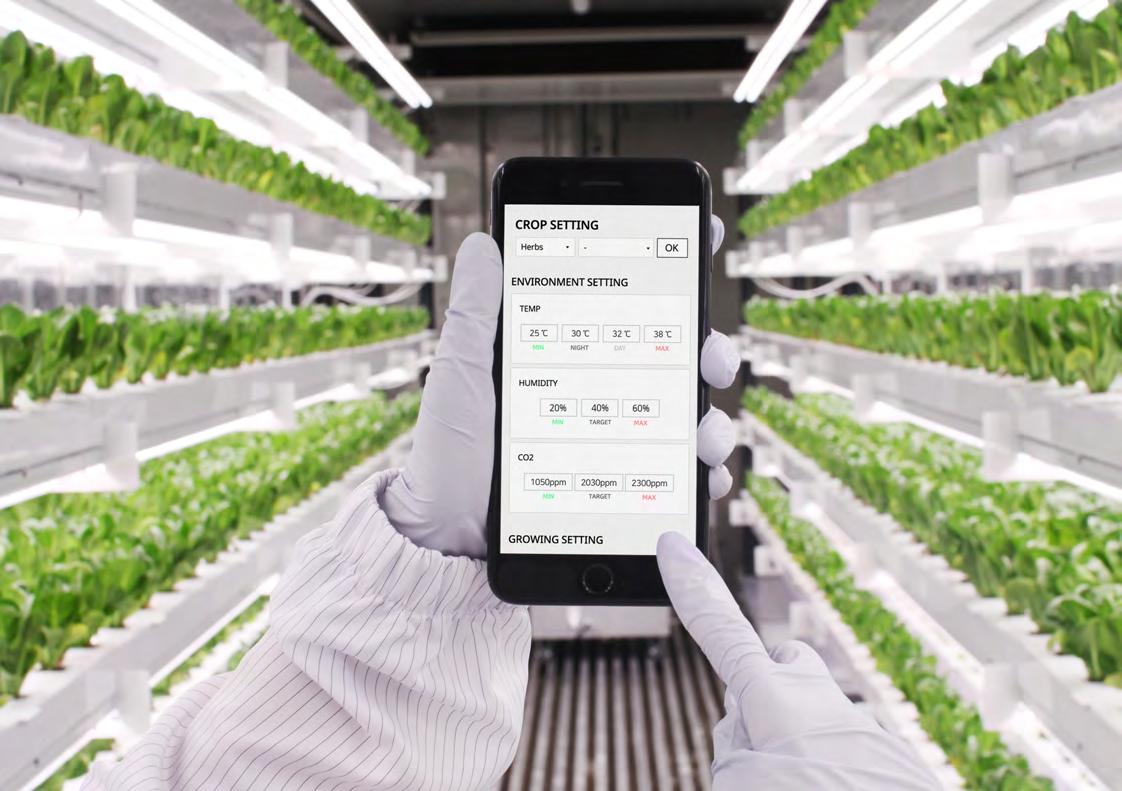
experience. Furthermore, using cultivation analysis, development of the new crops, and cultivation environment research via AI + ML, profits can be estimated more accurately.
N.THING’s operating system aims to produce crops of the highest quality. Provided that the farm has been managed sustainably, the OS offers farm owners the ability to cultivate quality crops and retrieve an estimate of the overall productivity and forecasted profits. The OS provides users with complete control over the growing process and is designed to add smart solutions that will impact the growth stages, unlike what is available with traditional farming.
Ultimately, the end goal is to achieve 100% automation of the farming process, and N.THING’s operating system is designed to effectively achieve this.
One fifth of CO2 emissions are caused by old public buildings and revamping old buildings can bring considerable advantages in terms of savings and sustainability.
BY ARUN SHANKARIf you take a building of 5,000 sqm, ABB can produce an energy saving of 25%, and this saving in cost gives a return of investment in two years.
When you look at expectations of shareholders, many of the investment funds require ESG performance.
Another important element is smart metering because that gives you the opportunity to see how much of the utility service is consumed.
ABB has a wide portfolio including buying accessories, smart home residential applications, and commercial building automation. Electrification is a global business because you need electricity everywhere.
“In Middle East, all of our divisions are quite well represented. Most of the 21 divisions of ABB are somehow active in the UAE,” says Thorsten Muller, Head of Global Product Group, Building and Home Automation Solutions, ABB.
ABB has set for itself certain targets. “The first one is we want to become carbon nuclear with all of our operations by 2030. The second is we want to support our customers with eco-friendly solutions to bring down their CO2 emission by a hundred million tons by 2030,” says Muller.
If you take a building of 5,000 sqm, ABB can produce an energy saving of 25%, and this saving in cost gives a return of investment in two years. “After two years, you are just generating better profits and that is super attractive.”
Just five years ago, that would not have been possible using traditional technology and it would require many years to achieve the return on
investment.
When you look at expectations of shareholders, many of the investment funds require ESG performance. Otherwise, there will be no investments in the future.
“If you look into energy distribution applications, like the intelligent microgrid, ABB is very strong there, because this is really the heritage of the company. We are doing that for more than a hundred years,” says Muller. Another important element is smart metering because that gives you the opportunity to see how much of the utility service is consumed. And then you can have an intelligent management layer on top, with balancing between different buildings and creation of a smart group,
One fifth of all carbon dioxide emissions are caused by public buildings. The great majority of them are deemed to be energy inefficient and not compliant to energy efficiency standards and regulations. Revamping old buildings can bring considerable advantages in terms of savings

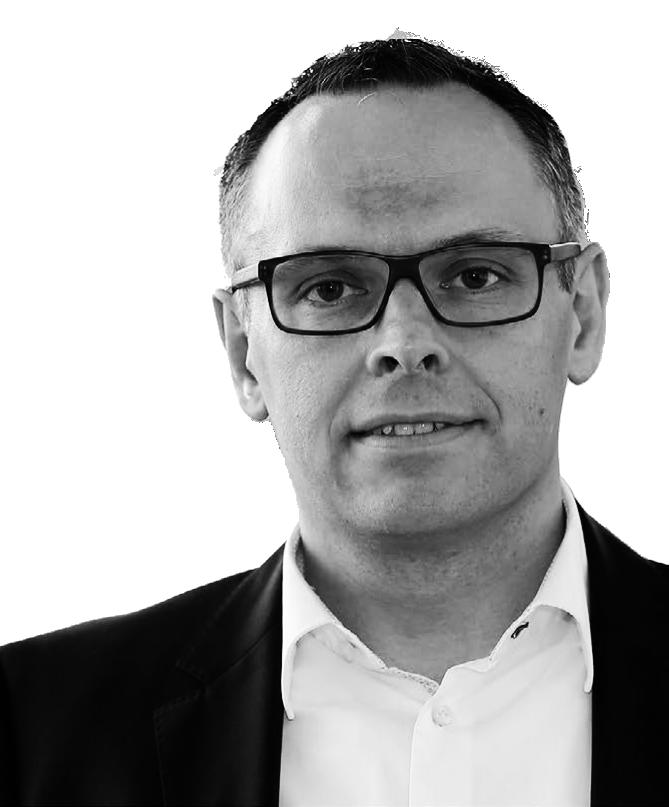
According to a study by Bain in 2021, the sustainability solutions market presents an opportunity of $100bn for ABB and is growing at a CAGR of 17%, reaching $380bn in 2030.
Accenture estimates the value of implementing a circular economy to be $4.5 trillion globally.
and sustainability.
The Paris Agreement was opened for signature on 22 April 2016 at a ceremony in New York. The Paris Agreement’s long-term temperature goal is to keep the rise in mean global temperature to well below 2°C above pre-industrial levels, and preferably limit the increase to 1.5 °C, recognising that this would substantially reduce the effects of climate change. Emissions should be reduced as soon as possible and reach net-zero by the middle of the 21st century.
ABB is committed to supporting the Paris climate. And if you look into the building stock around the globe, only 3% of the global buildings are built as new, each year.
“If you want to hit the Paris climate goals, you have to work with the existing building stock. Otherwise simply you do not have any chance,” adds Muller.
In Germany, 30% of the buildings are 15+ years old , and that is why ABB sees building automation as having a strong chance as part of retro fit and renovation applications.
Analysis by We Mean Business coalition has found that implementing the Paris Agreement will unlock at least $13.5 trillion of economic activity in the energy sector alone by 2030.
Businesses without energy management as a core competency will look for partners who can apply innovation across multiple sites using a range of digital technologies.
“Retrofit is for us a significant upside. If you have a completely new building, you can unlock even more potential. But we are also very much focused on existing buildings,” explains Muller.
There are three well defined customer segments to initiate retrofitting solutions:
l Businesses having their builtup industrial estate.
l Large retail chains with global sustainability targets.
l Facility management groups skilled labour managing the premises.
Muller says the backbone required for successful delivery of building management solution
is pretty much the same in all countries. “What we need is an intelligent platform, which can collect data, can analyse data and connect on it.”
Inside UAE, Muller sees a skew towards apartment buildings and the hospitality sector. And there is a significant opportunity to tap into the potential for generating energy savings.
Inside Dubai most of the wiring outlets are conventional. There is very limited automation in hotels. HVAC is controlled per room, there is no intelligence or automation built into the HVAC systems.
By bringing in IoT sensors the entire HVAC energy management system, becomes more intelligent and more autonomous.
“There is a very, big potential to save energy. In an average building, where we are deployed, energy cost is going down by 30% to 50%.” It is not possible to predict the energy savings since the energy consumption contracts are different in every country and locality.
A well connected and integrated building management system will automatically start cooling the room before the arrival of the guests. On the other hand, if there are no guests checking in, the building management system will allow the room to warm up slightly, saving energy.
Retrofitting existing building also requires being able to work through traditional data silos. Building management systems are dealing with siloed areas inside a typical building including security, HVAC, electrification, lighting.
“Taking the power of IoT it is much easier for us now to connect to different silos and to extract data and to work with that data.”
Despite these successes Muller still feels, “we are just in the way of transitioning.”

30% of the buildings are 15+ years old.
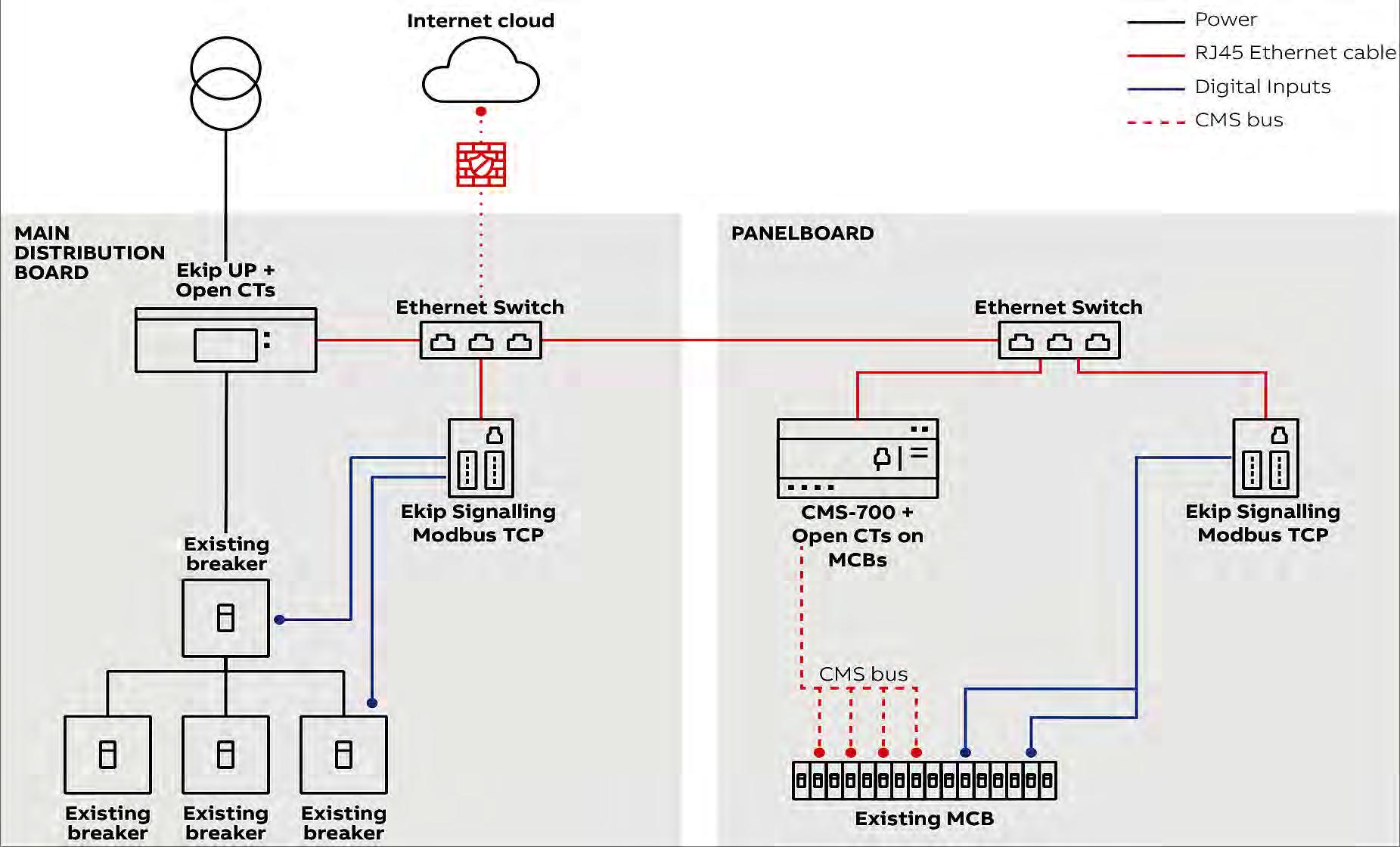
Ekip UP collects data from field devices. The Ekip UP is connected to the breakers and, via an Ethernet switch, to the Ekip Signalling. The breakers measure energy and power quality, while Ekip Signalling modules send information about status, alarms and the number of operations.
The CMS-700 in the panel is responsible for branch monitoring and is connected to the Ekip UP via Mod-bus TCPIP collects. It is also possible to control and check status of MCBs through Ekip signalling, connected to the same switch of the CMS-700. This data, together with information collected by the Ekip UP, then goes to the cloud and is made available on ABB Ability EDCS for further analysis.
Ekip UP is the low-voltage digital unit able to monitor, protect and control the next generation of plants. Thanks to the built-in software-based function, Ekip UP is the unit that digitalises the plant performance. Sharing all the electronics solutions of allin-one platform, Ekip UP completes the ecosystem to fit all the market opportunities. The result is a unit suitable for all the different applications including all the needed functionalities without the need of additional external devices.
ABB Ability Energy and Asset Manager is a state-of-the-art cloud solution that integrates energy and asset management in a single intuitive dashboard. Providing full remote visibility of asset and electrical-system behaviour, ABB Ability Energy and Asset Manager provides insights that help you minimise cost and risk and maximise performance and safety across your operations.
Large organisations have multiple stakeholders, multiple people, multiple personas, silos get created, and people are not ready to share the data.
BY ARUN SHANKARDataiku competes in the data science and machine learning platforms. It has been sitting in the Gartner’s leader’s quadrant for the last two years. On a scale of 5.0, Dataiku has been rated as 4.9 on parameters such as customer experience, integration, support, product capabilities. Dataiku has been well endorsed by the end user community and Gartner.
“Each and every customer out there, they are all looking at extracting insights from data they have collected,” says Siddhartha Bhatia, Regional Vice President, Middle East and Turkey, Dataiku.

Customers build data lakes and data warehouses and what they want is an end-toend data science platform, where everything is standardised. “This is where we define what end-to-end really is. We really are a very complete software platform,” he adds. Data science as a subject has five building blocks. These include:
l Clean and wrangle: This is the cleansing and wrangling of data. How do you connect with any data source whether structured, unstructured, semi-structured data, data at rest, or data in motion?
l Build and apply machine learning models: This can be done in a visual manner, which means that people who do not know anything about coding, like the business user or the business analyst, they can drag and drop and






























create automated machine learning models.
l Mining and visualisation: Dataiku is unique since one platform addresses both personas, the business side and the technical side. It has all the open-source libraries, that can be accessed by the data scientist, as well as dashboards and tables.
l Deploy to production: Once the prototype has been created, Dataiku makes it easy to move into production, also called operationalisation of models.






l Monitor and adjust: Dataiku provides one single interface to monitor the various models that have been deployed, to see the drift between the real data and the model and adjust the drift. Dataiku connects to any data, takes a sample of the data, applies cleansing and wrangling to the data, builds and applies the machine
 SIDDHARTHA BHATIA, Regional Vice President, Middle East and Turkey, Dataiku.
SIDDHARTHA BHATIA, Regional Vice President, Middle East and Turkey, Dataiku.
Data science as a subject has five building blocks.
Most large organisations and enterprises typically have the same challenges.
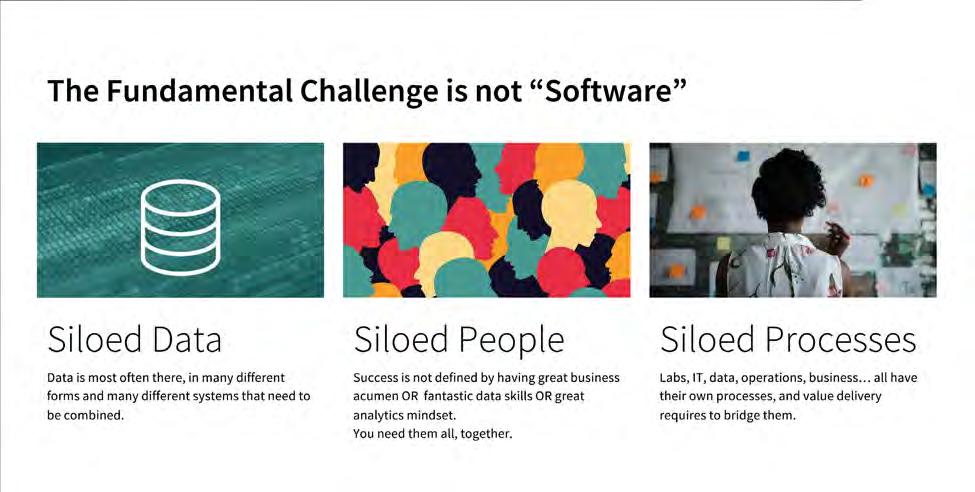
learning models, and pushes the output through an integrated business application for consumption by the end user.
The typical data science process is to build a model and train it from a certain data set using a designer. Once you are ready to deploy you move it into production that can be enabled to response through an API or through automation, depending on the use case.
Traditionally data science models were built using straight coding like Python and R, and the process
could take weeks and months. The next challenge would be moving the mass of code into production also called operationalisation.
Using Dataiku, productionising of models is rapid and straight forward. “Customers are able to get models from the design stage and development stage into production within a couple of hours,” says Bhatia.
Dataiku is in a unique position since it is one single platform across the five building blocks of data science. “What we offer is one license that addresses

Inside large organisations there are multiple stakeholders, multiple people, multiple personas and silos get created. In order to scale machine learning inside an organisation you need to thread together data, technology and people.
Dataiku is positioned as one platform for everybody in the organisation, and that is a unique positioning in the market with one single, collaborative, governable, auditable environment.
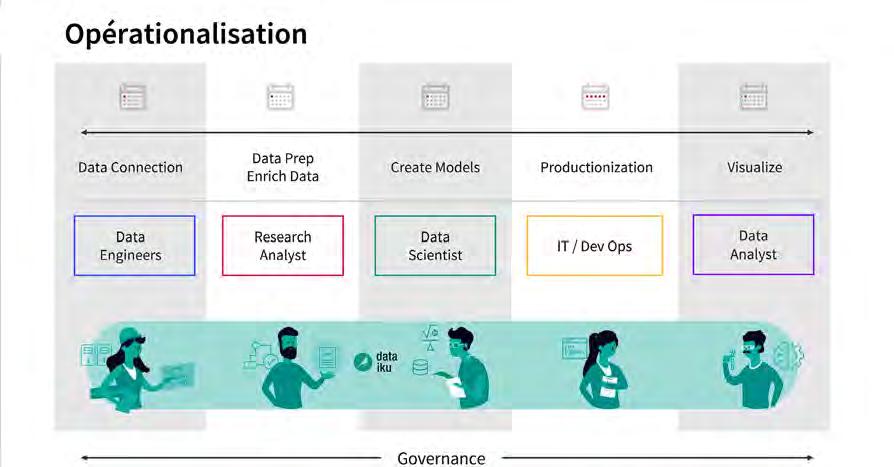
all the five circles end to end,” he adds. Typically, Dataiku works well where an end customer has a business challenge that needs to be solved, through multiple disparate data sources that need to be integrated.
“If I ingest, and if I connect to them and create sample data using machine learning and AI, we are into it” explains Bhatia.
Most large organisations and enterprises typically have the same challenges. The first challenge is the long baseline of historical data
that gets saved in multiple applications and multiple databases. The second challenge is the nature of the custodian of the data. Sometimes it is IT, sometimes it is business, sometimes another department. The third challenge are the processes around data consolidation and data sharing.
“These are large organisations with multiple stakeholders, multiple people, multiple personas. What usually happens in a large organisation is, that these silos get created,” points out Bhatia. “Moreover, people are not ready to share the data.
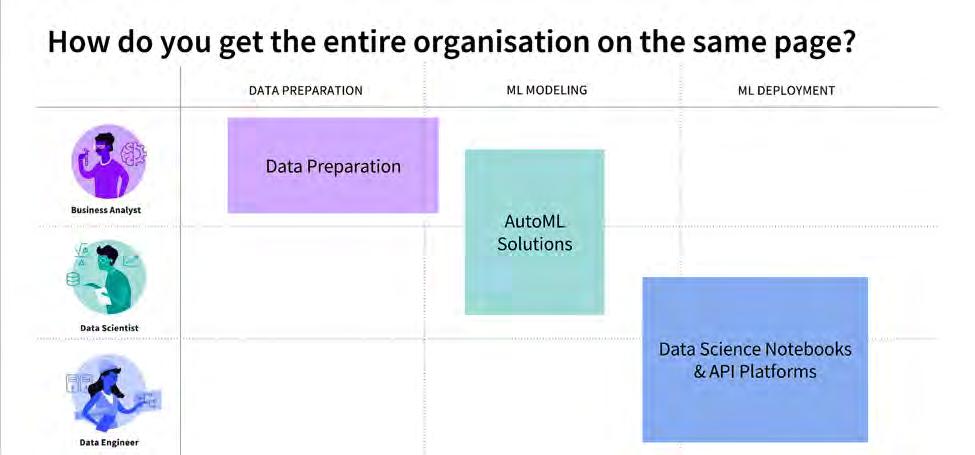
Another strength of Dataiku is that the application embraces open source and makes available its libraries.
That is where the problem is. Siloed-data, siloed-people, siloed-processes.”
Dataiku has been well endorsed by the end user community and Gartner.
Each and every customer is looking at extracting insights from data they have collected.
The typical data science process is to build a model and train it from a certain data set using a designer.
Once you are ready to deploy you move it into production that can be enabled through automation.
“We have seen a pattern where people have collected their data, but they are not getting insights. And for insights, they need a data science platform,” he adds. How do you explain technical concepts to business audiences? There is a silo there, and a lack of collaboration amongst different teams. Business is putting a lot of pressure, to deliver projects faster. It is also difficult to move, data science projects from a lab environment to a production environment.
In order to scale machine learning inside an organisation you need to thread together data, technology and people. And that thread is provided by Dataiku to enable and achieve successful end to end integration.
“We have the ability to connect to any kind of infrastructure,” continues Bhatia citing various examples. This could be a Snowflake database; a traditional data warehouse like Vertica or SAP HANA; the cloud; Docker based environment; Azure platform
or Google platform; data lake powered by Hortonworks or Cloudera; industrial control systems. “We can connect to any kind of data,” he reinforces.
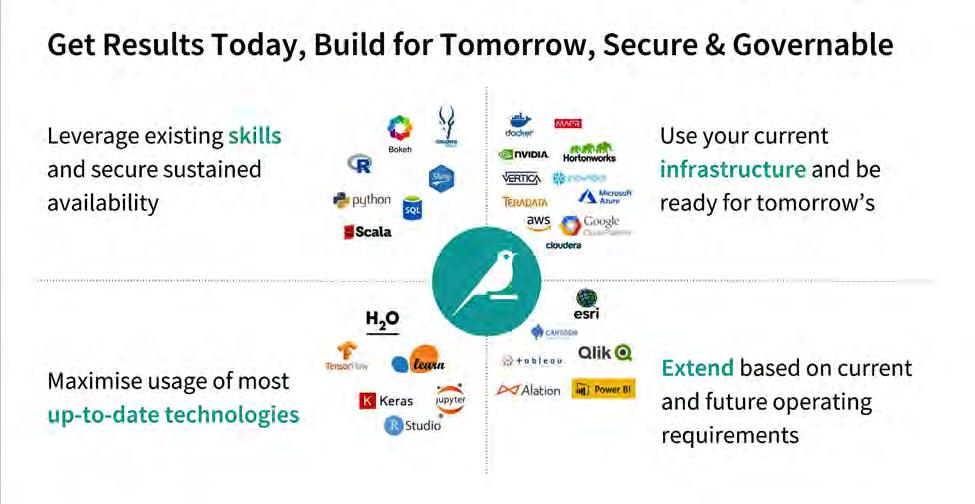
Dataiku is positioned as one platform for everybody in the organisation. And that is a unique positioning in the market with one single, collaborative, governable, auditable environment.
With increasing availability of cloud native offerings, another trend is the move to cloud. “We have seen a market shift and everybody’s preferring a cloudbased platform. That is a reason why on-premises are sort of fading away,” remarks Bhatia.
Another strength of Dataiku is that the application embraces open source and makes available its libraries. While this is a strength, end users also expect elements of governance, lineage, security, and making sure that everything is happening in a very auditable environment.
“If I had to summarise it in one line, I would say, we make open-source enterprise ready for our customers,” reflects Bhatia.
Accenture and Avanade form the world’s largest community of Microsoft skilled professionals, with the greatest number of certifications from any partner.
Neves is responsible for driving the company’s strategy and accelerated growth, deepening the strategic alliance with Accenture and Microsoft, as well as leading a team of digital professionals focused on the Microsoft ecosystem in the country.
Through the Accenture Microsoft Business Group, Adriano and his team bring global expertise and industry experience to help enterprises in the dynamic, high-potential UAE region realise business outcomes on the Microsoft platform.
“I consider myself an engineer and entrepreneur at heart, with a passion for growth, creativity and innovation, while driving a sharp focus on Avanade’s people and Avanade’s clients,” says Neves.
Prior to his current role, Adriano was responsible for Avanade’s Industry and Client organisations in Brazil where he led a team of 10 Directors focused on delivering exceptional experiences and making a genuine human impact on clients. Under his leadership, Avanade Brazil achieved double-digit growth year-on-year and continues to be one of the fastest-growing regions globally in the company.
“I have been fortunate to have had the opportunities to grow and learn a variety of skills throughout my years at Avanade. For example, prior to my current role in the UAE, I was responsible for Avanade’s Sales, Industry and Client organisations in Brazil –leading a team of people focused on delivering exceptional experiences and making a genuine human impact for Avanade’s clients.”
“I was also one of Avanade’s first employees in Brazil, partnering closely with Accenture and Microsoft to establish Avanade’s business and
market presence in the region. This opportunity gave me my first-hand experience in building a sustainable, multi-disciplinary business in a fastgrowing market, which will no doubt be invaluable to my current role in UAE,” continues Neves.
As one of Avanade’s first employees in Brazil, Adriano played a pivotal role in partnering with Accenture and Microsoft to establish Avanade’s business and market presence in the region. His first-hand experience in building a sustainable, multi-disciplinary business is no doubt invaluable to his current role in UAE. Before he joined Avanade, Adriano spent nearly 10 years in a variety of leadership roles at Microsoft Brazil.
“I believe in leading with high standards of integrity, making decisions based on principles and values, and nurturing long-term relationships with my team, clients and partners,” adds Neves.
Avanade was established in 2000 as a joint venture between Accenture and Microsoft, to be positioned as the Microsoft consulting partner for enterprise companies, bringing to clients the full expertise on Microsoft technology, industry knowledge as well as strong consulting and delivery capabilities.
Accenture and Avanade form the world’s largest community of Microsoft skilled professionals. Avanade has delivered more than 35,000 Microsoft projects for more than 12,000 clients in over 20 industries around the world. Avanade has the technology expertise and experience, the greatest number of Microsoft certifications of any partner, and a wide partner ecosystem to drive results for Avanade’s clients. Avanade was named Microsoft Alliance Partner of the Year 16 times, more than any other partner.
“I
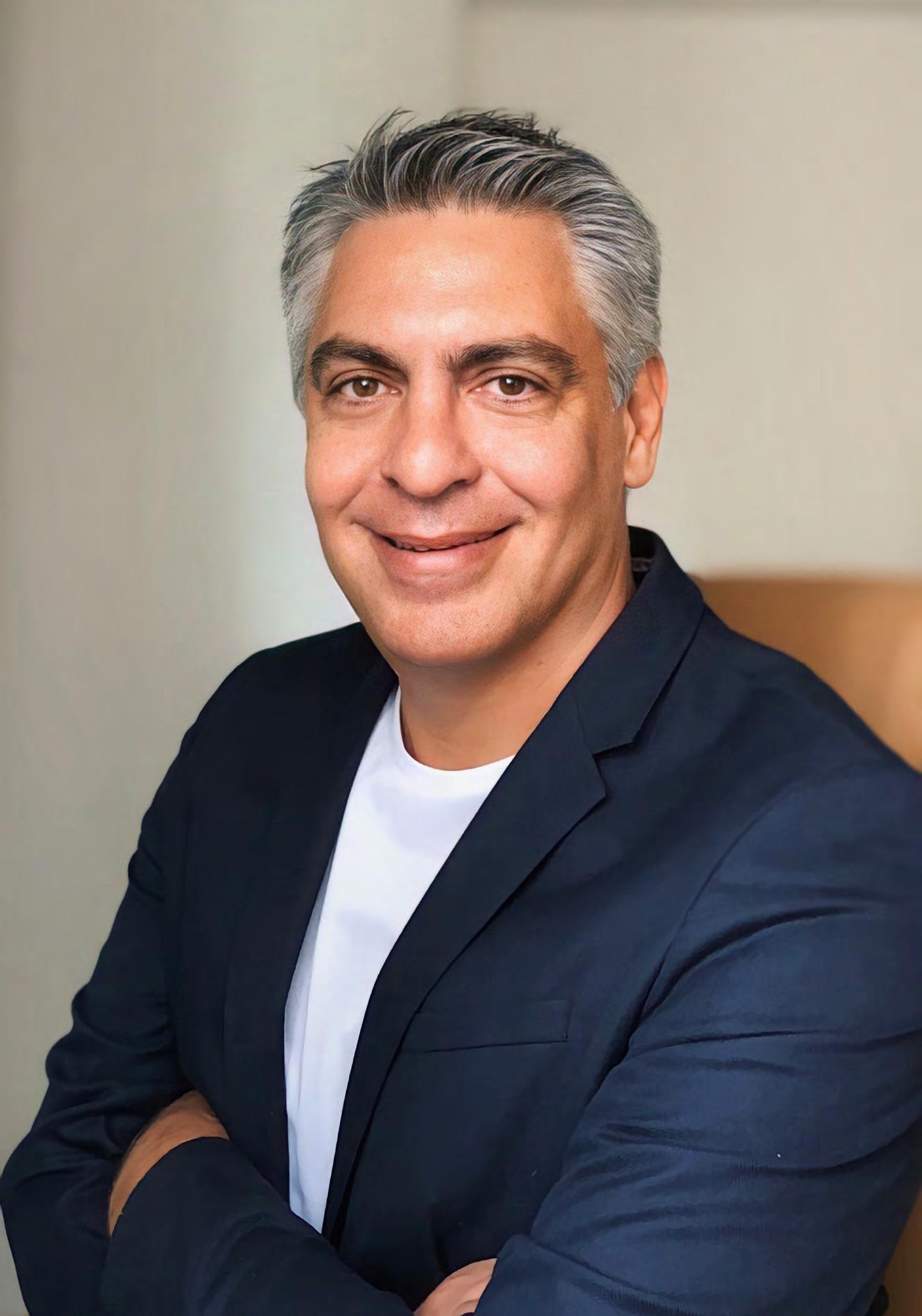
“We see tremendous growth potential in the UAE with significant opportunities to help organisations in industries, such as citizen services in public sector, oil and gas, utilities, financial services, and telecommunications, and financial services, accelerate their digital transformation journeys on the Microsoft platform,” says Adriano Neves, UAE Regional Lead, Avanade.
The breadth of Avanade’s solutions spans across multiple industries to encompass business consulting, analytics, AI, cloud, business applications, security, customer experience, employee experience, modern workplace, and managed services.
Avanade’s approach combines a blend of thinkers, makers and doers to help organisations rethink agility how to prioritise innovation and accelerate value from digital solutions to solve problems and adapt at speed; how to bring together people, processes and partnerships to create human-cantered digital experiences; and resilience how to use digital to diversify revenue streams and be a more inclusive, responsible and sustainable business.
With Avanade’s global delivery network, industry insights and technical depth, Avanade helps clients optimise their capabilities and digital innovation, while bringing additional capabilities like Agile, DevOps and cloud expertise to ensure technology supports their vision for their business and organisation.
In addition to being named the 2021 Global Alliance SI Partner of the Year, Accenture and Avanade have also been named:
l Automotive Partner of the Year
l Dynamics 365 Customer Insights Partner of the Year
l Dynamics 365 Customer Service Partner of the Year
l Dynamics 365 Supply Chain Management & Finance Partner of the Year
l Employee Experience Partner of the Year
l SAP on Azure Partner of the Year
l Sitecore’s Global Partner of the Year
Avanade provides digital and cloud services, business solutions and design-led experiences to help organisations realise business outcomes on the Microsoft ecosystem.
Avanade has 50,000 people present in 26 countries globally, bringing bold, fresh thinking combined with technology, business and industry expertise to help make a genuine human impact for our clients, their customers and their employees.
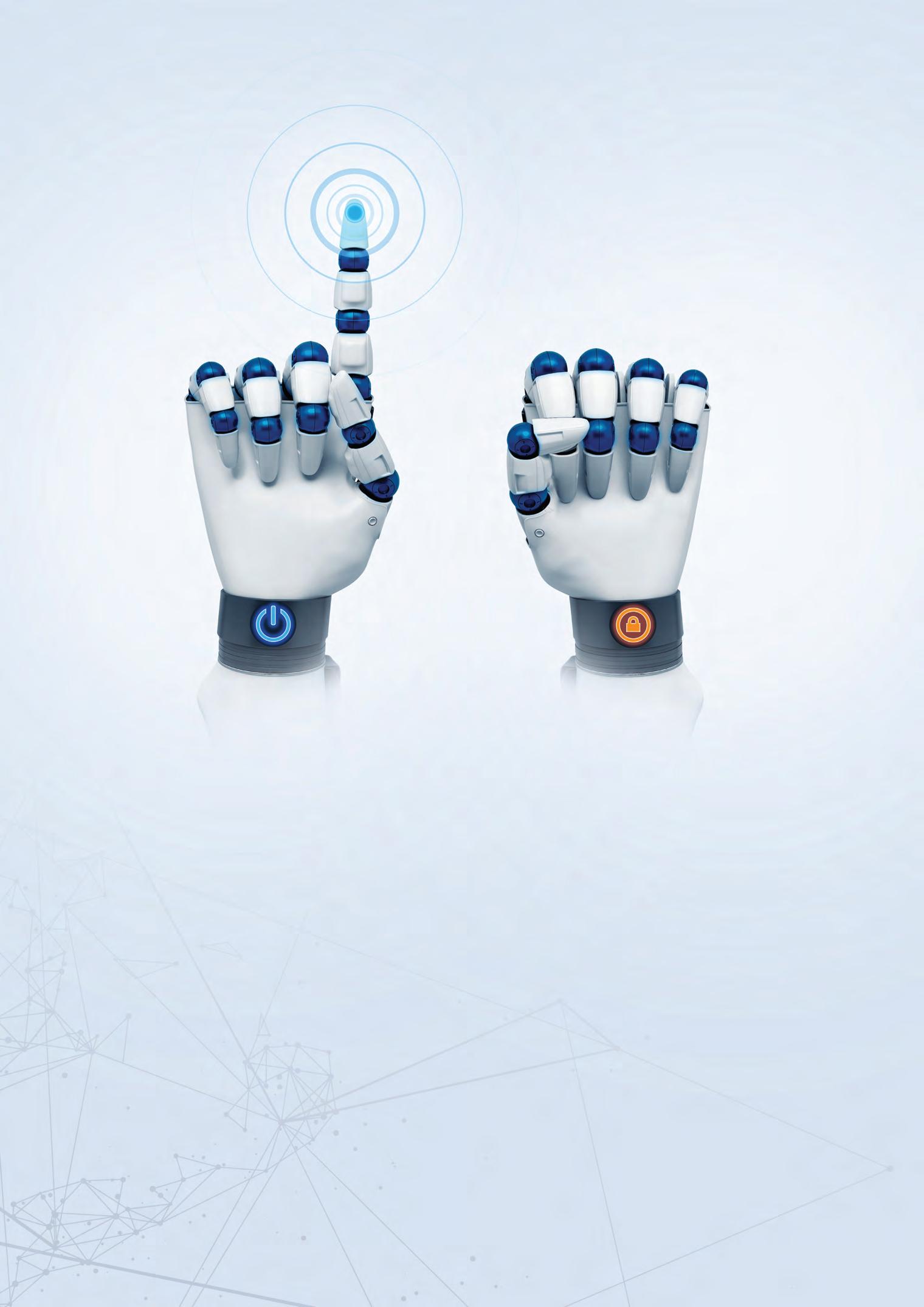 Senior
Senior
Emirates NBD, a banking group in the Middle East, North Africa and Turkey, is offering voice banking with Amazon Alexa in the UAE. The Amazon Alexa App is now available on both UAE iOS App and Google Play stores.
Emirates NBD customers can enable the Emirates NBD banking skill on their Alexa App and access details of their recent Emirates NBD account and credit card transactions using conversational language as well as listen to market briefings through any Amazon Alexa-enabled device. This service will now also be available in Arabic.
This service is part of the bank’s continued efforts to offer value-added banking services and utilizes application program interfaces built-in line with established open banking standards, allowing the exchange of financial information between banks and third-party providers such as Amazon while upholding strict security and privacy guidelines for users.

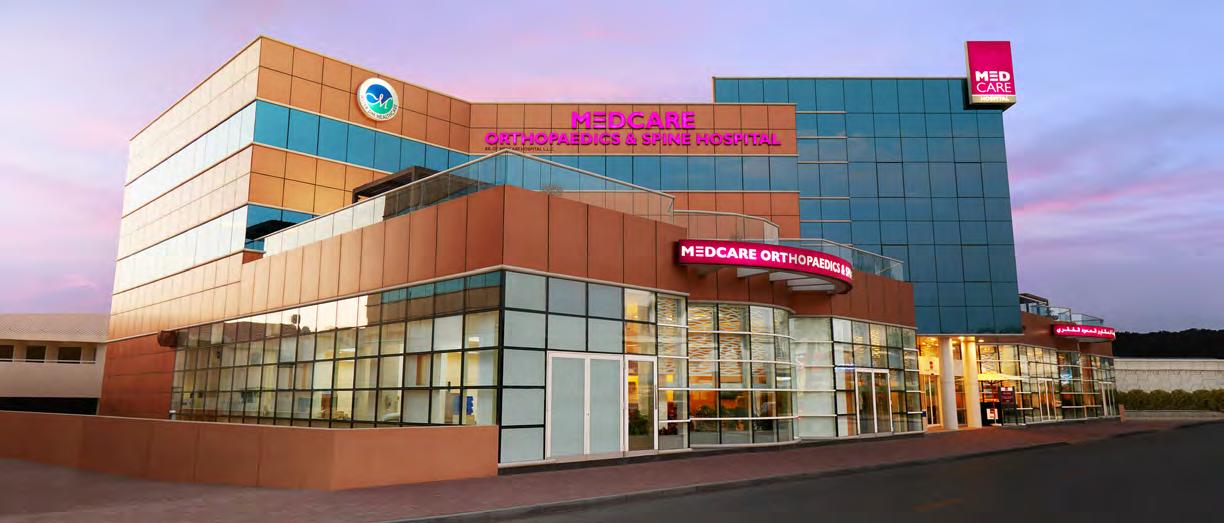
Medcare Orthopaedics and Spine Hospital has gone live with InterSystems TrakCare unified healthcare information system to digitalise and unify care delivery and enhance patient experience. The JCI-accredited facility – dedicated to comprehensive management of diseases, disorders, and injuries of the musculoskeletal system and spine is one the most technologically advanced healthcare facilities in the UAE.
TrakCare, with its unified clinical and revenue cycle management capabilities, enables Medcare’s care providers to have a holistic view of each patient’s clinical, administrative, and financial information at any given time, and supports Medcare’s medical staff in their decision-making process.
The hospital has implemented TrakCare as a Service which is a state-of-the-art cloud-hosted electronic medical record service that enables hospitals and clinics to achieve their clinical and financial objectives without making major upfront capital expenditures.
Tech Mahindra, a provider of digital transformation, consulting, and business re-engineering services and solutions, announced that it has been working with Telefónica Germany to digitally transform its microwave network with open software defined networking.
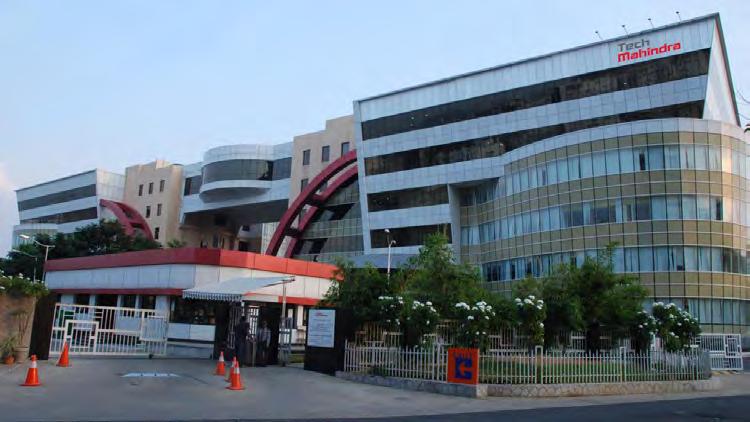
Telefónica is working to standardise its management interface by collaborating with multiple vendors and partners. Tech Mahindra is helping Telefónica achieve this by bringing its domain expertise and continuous integration capabilities to the partnership. Tech Mahindra has been working with the telco to implement new standards for its DevOps model including enhancing its processes and requirements. This includes the continuous management support of service operations for the organisation’s overall SDN Architectures.
The project involves the deployment of microwave transmission automation aimed at elevating service delivery and network operations. All microwave devices in Telefónica Germany’s mobile backhaul network are accessible via a single harmonised Network API which supports an open microservice framework.
Telefónica has been able to integrate 30,000 microwave links from multiple vendors into the OpenDaylight Controller using ONF TR-532 interface standard. This also reflects Tech Mahindra’s commitment to invest in open-source technologies to accelerate scaling out networks. The move to SDN will enable Telefónica to adopt automation functionality in the future more easily.
Cathay Pacific Cargo is launching Click & Ship, its new digital booking platform, progressively across its network starting this month. Click & Ship promises to book transparency and speed, day and night. Customers in the Middle East, particularly in UAE and Bahrain can view prices and capacity, and book cargo with instant confirmation in just three steps through the intuitive booking interface.
Digitalisation and automation are central to Cathay Pacific Cargo’s vision to become the world’s most customer-centric air cargo service brand. Click & Ship is the latest digital innovation along this journey.
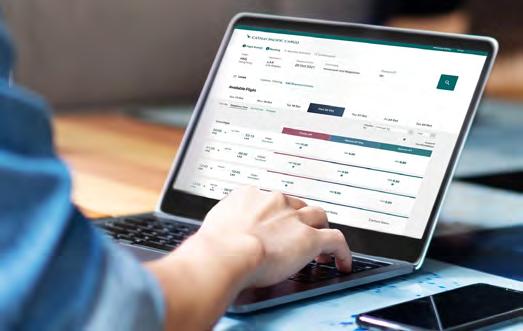
Over the past 20 years, the air cargo industry has continued to rely on manual processes and email confirmation for shipment bookings, while the passenger airline industry has evolved to enable customers to book tickets and other services online. In recent years, Cathay Pacific Cargo has pioneered paperless operations and automation of manual processes
in the airfreight industry, working with its majority-owned subsidiary and IATA e-freight partner, Global Logistics System HK Co, Ltd GLSHK. The launch of Click & Ship marks a bold leap forward in the endto-end digitalisation of air cargo.
Tech Mahindra has been working with the telco to implement new standards for its DevOps model
Western Union, a global leader in cross-border, cross-currency money movement and payments, in association with Aman Exchange, have announced a collaboration with Public Authority for Civil Information to integrate Kuwait Mobile ID within westernunion.com and the Western Union Mobile App.
Western Union is the first money transfer operator in the country to integrate Kuwait Mobile ID capabilities into its digital solutions, accelerating its tech-focused growth strategy to ensure customers have access to reliable and convenient payment services.
With this new integration, Western Union consumers in Kuwait can now enjoy a seamless registration and online verification process prior to using the Company’s digital service offerings, which enable them to send money to their loved ones globally, 24X7.
Kuwait Mobile ID, a solution by the Public Authority for Civil Information, is a mobile-based Digital ID derived from the Civil ID with capabilities including, but not limited to, identity verification, authentication to online e-services and applying trusted digital signature to documents and transactions.
stc exerted its technical capabilities to cover the land port between Saudi Arabia and the Sultanate of Oman, which was recently inaugurated between Al Bat-ha area in Al-Ahsa and Umm Al-Zamoul at the Omani borders in a desert area with difficult and special terrains. The project linked the fibre-optic network along the road, where network coverage reached 100% and was implemented as a support for local content, through 10 local contractors. The length of cabling procedures exceeded 590 km while the length of fibre-optic cables exceeded 630 km, using more than 80 high-tech machines and equipment and with the participation of more than 1,500 workers and technicians who worked around the clock.
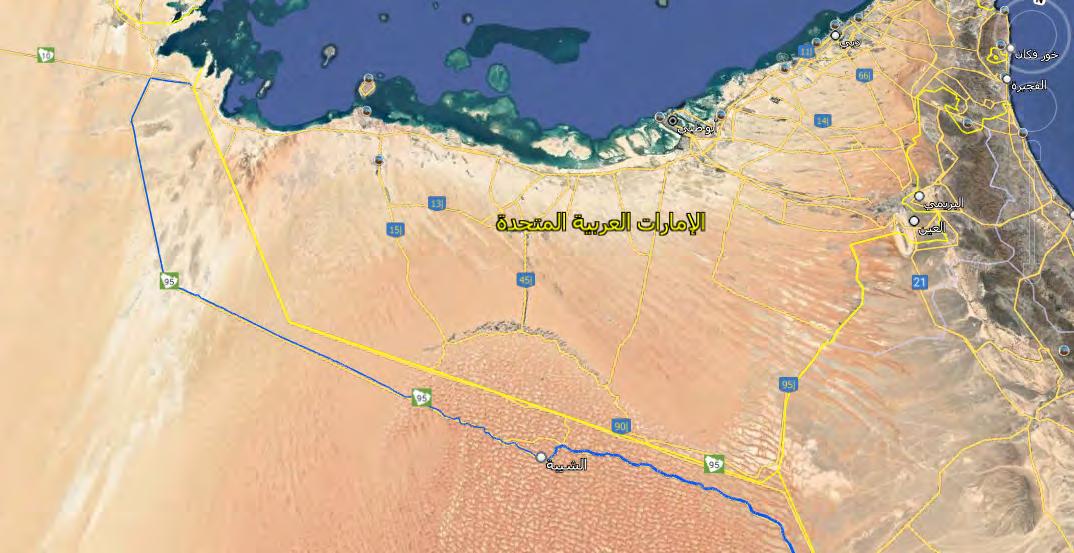
The project was implemented in various areas along the road, which are characterised by its difficult and tough terrains and hard to work at in some circumstances.
This project is considered one of the large projects implemented by stc and within a short record period of 180 days, where 40 mobile towers were connected with optical fibres. The land port service and the entities working in it with the latest technologies and at high speeds that support 100 GB of data.
Considered one of the large projects implemented by stc within a record period of 180 days, 40 mobile towers were connected with optical fibres
stc connects
Saudi Arabia and Oman through 630 km of optical fibre and 40 mobile towers
Indian Oil Corporation, with presence in oil, gas, petrochemicals and alternative energy sources, has selected AVEVA, to drive its digital transformation and sustainability. As a key initiative under the banner of its digitalisation project i-DRIVE, Indian Oil aspires to transform its scheduling work process across nine refineries and one petrochemical complex in India for implementation of Refinery Production Scheduler. AVEVA Unified Supply Chain will enable IOCL to digitalise its refinery and naphtha cracker scheduling workflows, optimise blend scheduling to meet daily product dispatch plans and provide end-to-end visibility across its operations.
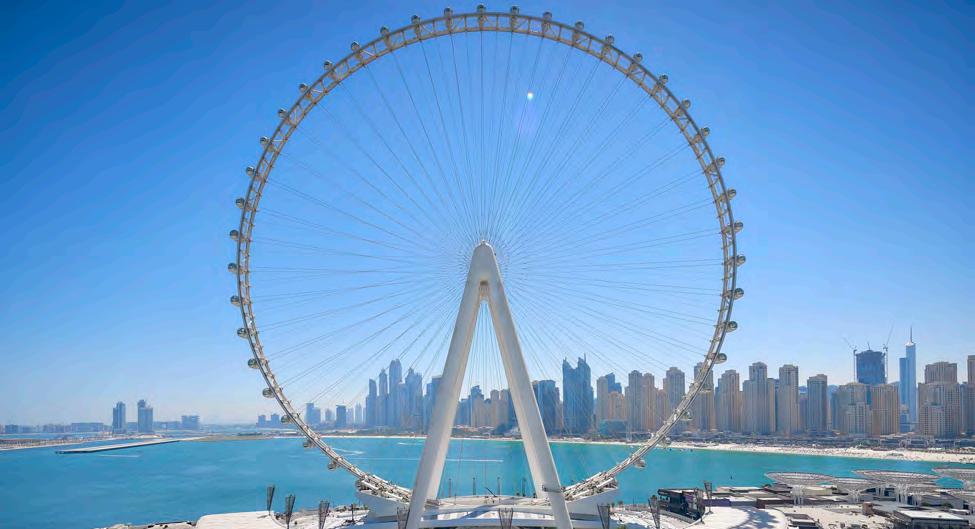
du, from Emirates Integrated Telecommunications Company, has announced that its next generation 5G network, the fastest in the UAE, will ensure people are seamlessly connected aboard Ain Dubai, that world’s largest and tallest observation wheel by Dubai Holding.
Standing at over 250 meters tall, Ain Dubai is the latest landmark to join Dubai’s skyline of record-breaking attractions. Offering unique views of the city’s iconic landmarks from indoor, air-conditioned cabins, du’s network will further enhance experiences for countless guests.
Given that Ain Dubai constantly rotates, the wheel structure makes it impossible for classical wired indoor mobile solutions to be implemented. However, du’s mobile broadband network has enabled the leading telco provider to deploy a state-of-art, wireless, and 5G-backed smart solution within all 48 of Ain Dubai’s cabins.
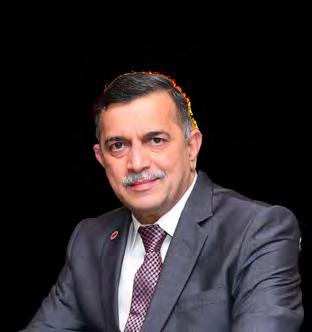
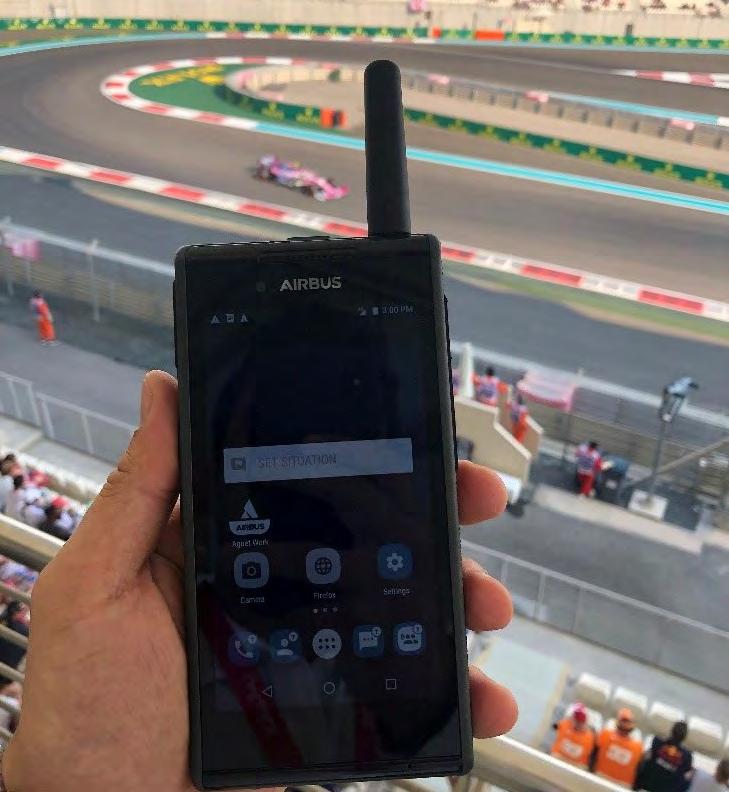
Airbus has extended its support to Abu Dhabi Grand Prix this year as Formula 1’s official secure communications technology provider in the emirate. The high-class international auto racing took place yesterday at the 5.281-kilometre Yas Marina Circuit on Yas Island.
Airbus has deployed its range of state-of-the-art Tetra and LTE solutions to help secure the race site and keep the racers and spectators safe. Airbus’ TH9, TH1n, the Radio Console System, and Tactilon Agnet has been used by security organisations to collaborate throughout the Grand Prix operations.
All solutions are equipped with modern and reliable features to enable fast and secure coordination between users. The TH9 Tetra radio, a preferred device among first responders, delivers clear audio and boasts of large, sharp display and voice feedback ability. The voice feedback functionality lets users operate the device even without looking.
Taction Agnet, provides professional smartphone users with reliable access to voice, video, multimedia, files, and location data. It also enables instant sharing of information among members of a defined group of people at the push of a button. It has a simple user interface to save vital seconds, especially during emergencies.
The TH9 Tetra radio, a preferred device among first responders, delivers clear audio, large display and voice feedback ability

Across the UAE, the banking and wider financial services sector is changing faster than most individual incumbent banks, with consumer forces disrupting their roles, structures, and competitive environment. As financial and lifestyle services continue converging and financial products become even more embedded within customer propositions, enriching existing banking offerings with lifestyle services will enable local institutions to build deeper, wider end-user relationships while consolidating their relevance status.
Arthur D Little, expounds this viewpoint in their latest report entitled Beyond Banking: Is there an opportunity for banks to go beyond banking in the UAE? Based on a recent survey Arthur D Little conducted in collaboration with M2P Solutions, a leading application programming interface infrastructure company, the report explains why the national banking sector is likely to drive newer ways of banking in due course and details the necessity for adopting multiple partnership-based strategies in the evolving ecosystem.
94% of surveyed healthcare facility managers see remote management as a critical enabler of operational efficiency for their buildings. This is according to a new report from Honeywell highlighting a trend towards greater adoption of connected, always-on building management systems that can enable a building to be controlled from virtually anywhere in the world, in real-time.
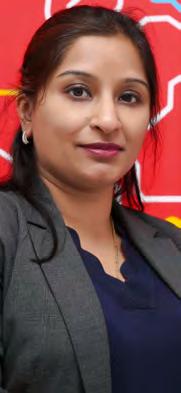
According to the study, 25% of surveyed facility managers currently have such a system in place, with a further 26% expecting to invest in this technology over the next 12 to 18 months.
The report, Rethinking Healthcare Facilities as Integrated Entities, part of Honeywell’s 2021 Building Trends series, presents the challenges, priorities and assessments of surveyed facility managers across the healthcare sector in Saudi Arabia, the United States, China and Germany.
Occupant safety and wellbeing also ranked high in priority, with more than 90% of surveyed facility managers in Saudi Arabia saying improved indoor air quality and life safety systems are important to attracting and retaining facility occupants. Respondents are likely to invest in at least one of the following over the next 12 to 18 months: IAQ solutions 28%, fire detection software 28% or aspirating smoke detection 25%.
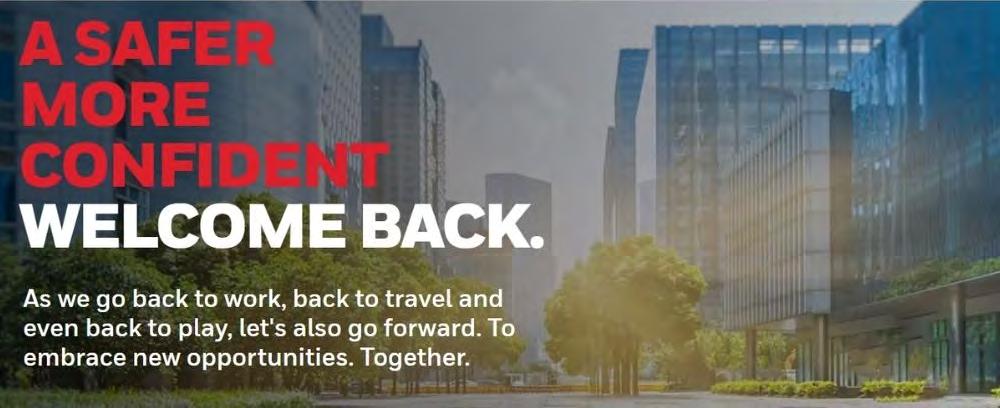
As Saudi Arabia makes sustained progress towards its 2030 Vision, the Kingdom’s e-commerce market has witnessed rapid growth in recent years. Driven predominantly by apparel, electronics, and appliances, e-commerce sales have increased by more than 30% on average annually, with growth observed across all categories.
Boston Consulting Group’s new report, titled ‘The SAR 50 Billion E-commerce Opportunity in Saudi Arabia,’ importantly highlighted that the sector’s market value increased to almost 60% between 2019 and 2020, and is now projected to exceed SAR 50 Billion by 2025.
BCG’s report, prepared in collaboration with Meta, details how e-commerce growth largely outpaces that of traditional retail and shows no signs of abating. However, the segment is still in a nascent phase at present despite undergoing fast growth.
In 2020, online sales in Saudi Arabia accounted for approximately 8.0% of total retail sales compared to 18% worldwide, and this figure is also much lower than those in leading e-commerce markets where penetration easily exceeds 30 or 40%.
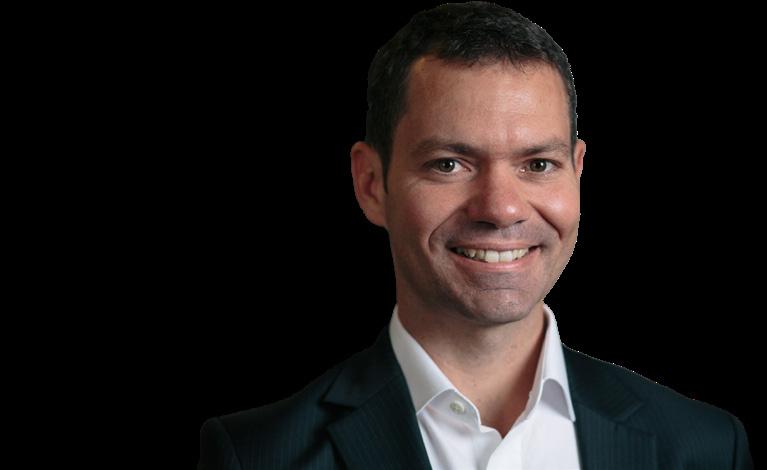

In a special report on the 10th anniversary of the DHL Global Connectedness Index, DHL and the NYU Stern School of Business highlight strong links between global connectedness and prosperity. The United Arab Emirates is among the five countries that the report examines - other being Mexico, The Netherlands, Sierra Leone and Viet Nam, which have stood out for their strong or rising connectedness over the past two decades.
The various paths these countries took to greater connectedness show that there is no one-size-fits-all prescription – instead, each country can pursue the international opportunities that make the most sense in its own local context.
This report shows how policymakers can actively impact the connectedness of their countries. Five key areas for improving a country’s connectedness are peace and security, an attractive domestic business environment, openness to international flows, regional integration, and societal support.
Remarkably, an attractive domestic business environment may boost a country’s global connectedness even more than traditional pro-globalisation policies. The Covid-19 stress test revealed longstanding vulnerabilities that demand attention moving forward.
PABLO MARTINEZ, Managing Director and Senior Partner, BCG.
In 2020, online sales in Saudi Arabia accounted for approximately 8.0% of total retail sales compared to worldwide 18%
An attractive domestic business environment may boost a country’s global connectedness even more than traditional proglobalisation policies
Technology Innovation Institute the applied research pillar of Abu Dhabi’s Advanced Technology Research Council, announced that its Directed Energy Research Centre has, in partnership with Brazilian technology disruptor RADAZ, received the first microwave images from their joint project on Airborne Multi-band Interferometric Microwave Imaging that leverages a new multiband Synthetic Aperture Radar taken in the deserts of Abu Dhabi.
Utilising its experience in Ground Penetrating Radars, DERC, together with RADAZ, is looking to detect buried objects in the ground using an airborne payload. The Airborne Multi-band Interferometric Microwave Imaging Project A(MI)2 can generate terrain images from microwave sensor readings in P, L, and C frequency bands
The system comprises a set of specialised microwave units and antennae that are connected to commercial drones, and they enable the production of microwave images. The microwave sensors embedded on a UAV flying autonomously above a pre-defined area collect electromagnetic measurements. Once collection is complete, back-projection algorithms convert the acquired data into microwave images using georeferenced information from a ground station.
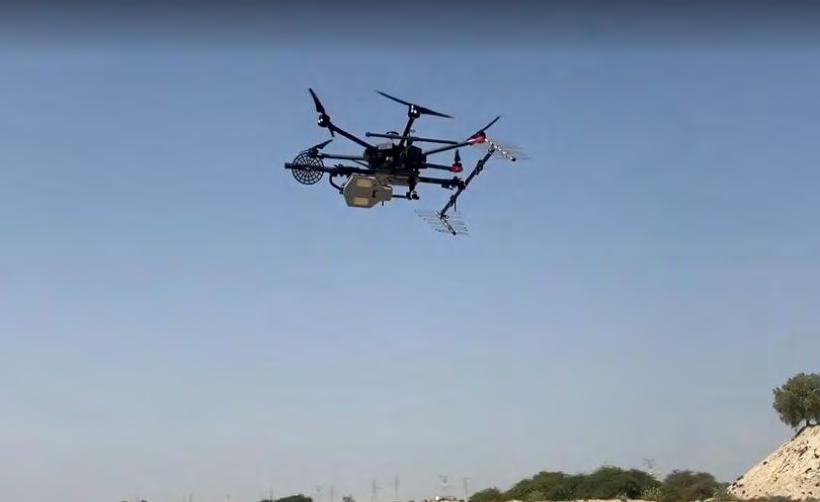
The Synthetic Aperture Radar is used to create two-dimensional images or three-dimensional reconstructions of objects, such as landscapes. SAR uses the motion of the radar antenna over a target region to provide finer spatial resolution than conventional stationary beam-scanning radars. SAR is an effective and important technique in monitoring crops and other agricultural targets because the quality of the images does not depend on weather conditions.
As Covid-19 cases continue to decline in the country, residents regain confidence in in-store shopping. This is according to a Kearney study in which UAE respondents cite convenience 51%, enhanced shopping experience 49% and competitive pricing 44% as the main motivators driving them back to brick-and-mortar stores.
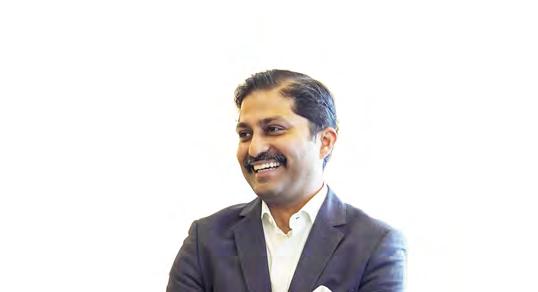
The study revealed that over the last quarter, 34% of residents have increased their spending on non-essential items by over 25%. This is compared to only 23% of respondents who reported increased spending in June. This increase echoes the forecast issued by the Dubai Chamber of Commerce and Industry earlier this year, which estimates store-based retailing to grow at a CAGR of 5.7%.
The most popular categories for in-store purchases were those which required physical inspection, including footwear 53%, home or casual wear 37%, and work clothing 35%. When looking at motivating factors for online shopping, time saved 49% was the largest driver. This was followed by ease of purchase 37%, Covid safety restrictions 37% and ease of delivery 37%.
34%
The system comprises a set of specialised microwave units and antennae that are connected to commercial drones
of UAE residents have increased their spending on non-essential items by over 25%DEBASHISH MUKHERJEE, Partner, Consumer and Retail at Kearney Middle East.
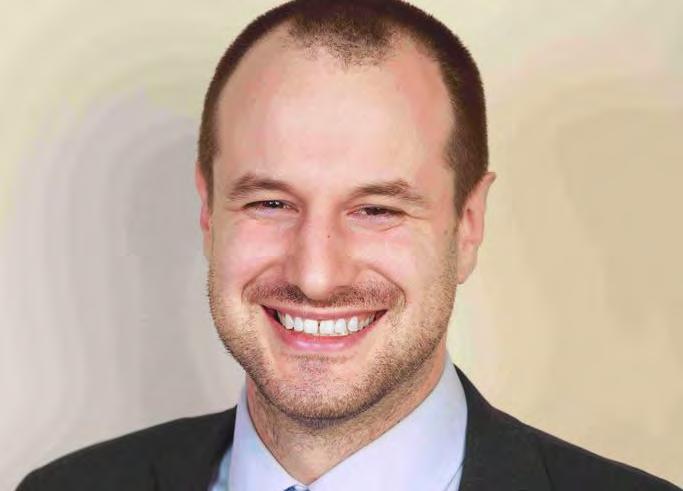
Salesforce, the global leader in CRM, released its annual Cyber Week report, which analyses shopping data from over one Billion shoppers on the Salesforce Customer 360 platform and activity across commerce, marketing, and service. Overall, 2021 global online sales hit an all-time high of $275 Billion, up 2% compared to 2020.
The data shows that digital patterns established during the pandemic are still a force this holiday season, with strong early November growth driven by consumers who were not deterred by higher prices, lower discounts, and decreased product inventory. Cyber Week itself saw muted growth as a result of these earlyseason shoppers working ahead of the traditional shopping peak.
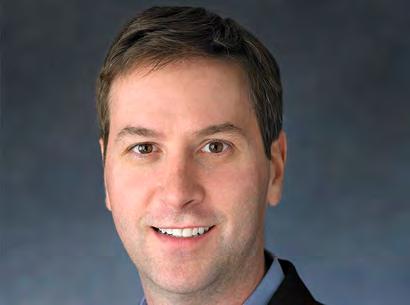

Singapore ranked number one in the 2021 Global Investment Opportunities Index recently released by Whiteshield Partners, a global strategy and public policy advisory firm, making the country the leading investment destination worldwide during this pandemic era. Singapore was followed by Switzerland and Luxembourg to complete the Index’s top three countries.
According to the report, Asia and Oceania continue to emerge as the next regional investment destinations. Singapore topped the Index’s list of 111 nations evaluated based on 29 indicators spanning the three pillars of risk, policy, and the market.
Asian developing countries have emerged as the next regional investment destinations based on the report. Aside from their strong performance on risk and market pillars, these nations have also effectively contained the virus and have infection and death rates from Covid-19 that are about 3 per cent of the global average.
Furthermore, the Index revealed that developing nations with strong growth tendencies have greater development opportunities and, thus, investments. Within the growth sub-pillar, the leading countries are to be found in Africa and developing Asia.
ROB GARF, VP and GM of Retail, Salesforce.Asian developing countries have emerged as the next regional investment destinations based on the report
Small and medium enterprises across the Middle East and Africa region are recognising digitalisation as essential to staying competitive in a transformed business and economic environment. The insight is one of many in a new white paper by payments technology leader Mastercard, which explores the way small businesses are viewing digital payments, online presence and the benefits of an evolving cashless economy
The white paper, titled The Digital SME: How Are Small and Medium Enterprises in the Middle East and Africa Embracing a Digital Future? is an in-depth follow-on study from the data rich Mastercard MEA SME Confidence Index 2021. This piece of research released findings about the importance of digitalisation and rising confidence levels as SMEs across sectors, products, and services in the region, adapt to the new and evolving economic landscape.
It revealed that SMEs in MEA recognise faster access to revenue as the biggest benefit of a cashless economy to their business 44%. Other benefits identified include the ease of not handling or processing cash 50% and having more convenient ways of paying suppliers and employees 50%.
The majority of CEOs of the largest businesses in the United Arab Emirates remain confident in the local economy with optimism reaching pre-pandemic levels.
The KPMG 2021 CEO Outlook – UAE finds 92% of CEOs are confident about the country’s growth prospects compared with 82% of their global counterparts. Similarly, 88% of local business leaders are optimistic about their company’s growth.
The survey found UAE business leaders believe inorganic strategies will be critical in driving their businesses forward over the next three years. Almost seven in ten, 68% CEOs say they will primarily use M and A - the focus for 36%, strategic alliances with third parties 20% and joint ventures 12% to achieve this ambition. In addition, partnerships and industry collaboration will be important for driving digital innovation and acquiring technology capabilities.
The prospect of a stronger future is a result of the UAE government’s response to the pandemic, such as imposing an early lockdown, promoting the vaccination program alongside spreading awareness, and government stimulus measures announced last year. These activities collectively contributed to overcoming the crisis. Consequently, investor sentiment has increased due to the country’s recent progressive
reforms, including new long-term visa schemes.
Expo 2020 Dubai is also expected to play a big role in driving economic growth this year and next, boosting tourism and foreign investment and contributing to an anticipated economic growth rate of 4.9% in 2022.

KEY FINDINGS:
l Connecting ESG strategy with financial returns
l Digital disruption moves up on the CEO agenda
l Changing sentiment on the future of work

digital payment methods used by MEA SMEs include mobile 59%, online 49%, cards 48%
Expo 2020 Dubai is also expected to play a big role in driving economic growth next year
Operators, fleet managers, drivers who are attuned to the health of their vehicles will understand which aspects are holding them back.
Journeys are longer, timescales are shorter, environmental restrictions are tougher and customer expectations are greater than ever.
Truckers and fleet managers cannot afford to be held up by any one of these challenges. As we have all seen throughout the last year, strong supply chains are integral to the health of our nations and the strength of our economies.
Any disruption to them can have catastrophic repercussions for us all. To avoid this, fleet managers must ensure each vehicle performs at peak ability for as long as possible.
With the right expertise, training and tools, fleet managers can be confident they are making the right options to achieve peak efficiency, long-term. After all, a healthy vehicle fleet pays dividends.
Owner operators, fleet managers and drivers who
are attuned to the health of their vehicles will understand not only which aspects are holding them back, but also what is to be gained by optimising vehicle health. They have a vision for what the fleet looks like when It is running perfectly. But how do they gain this understanding?
There could be a myriad of aspects to understand and issues to diagnose, so expert help is a great solution to grow your confidence in making assessments. With guidance, mangers can:
l Conduct a fleet survey to understand business goals and assess how far your existing fleet can meet them.
l Discover which lubricants each part of the system requires to perform at its peak.
l Regularly test used oil from your vehicles to develop a deep understanding of the holistic health of the system to reduce maintenance costs and maximise uptime. Powerful analytical and technical tools are on fleet managers’ sides when it comes to boosting vehicle health. For instance, a value calculator can show how fleets can significantly reduce operating costs and improve efficiency, while tank-level telemetry systems can give full remote visibility of lubricant and fuel levels across the stock – and even top them up automatically.
Once they have established what it will take to increase the health of the fleet, it is time for managers to act. Focussing upon creating efficiencies while striving for targets will enable them to optimise performance.
Take your vehicle’s performance to the next level by mitigating much hotter sump and turbocharger temperatures, and higher
By resisting oxidation and wear through high quality lubrication, fluid technologies can inhibit the production of harmful deposits.
A value calculator can show how fleets can significantly reduce operating costs and improve efficiency.
Tank-level telemetry systems can give remote visibility of lubricant and fuel levels across the stock.
air temperatures, which can lead to faster oxidation.
By resisting oxidation and wear through high quality lubrication that maintains its viscosity, these fluid technologies can inhibit the production of harmful deposits which can slow down performance. Meet ever-tighter emissions regulations which are getting tougher by the year. For example, Euro VI 2013 demands a reduction in Nitrogen Oxide of 95% since 1992. As emissions targets continually evolve, fleet managers must be able to rely upon technologies specifically designed for longterm sustainability and emissions reduction.
To satisfy this requirement, oil with a strong but thin fluid film can extend drain intervals – thus limiting the amount of stop-starting at garages, and limit emissions. Overcome the challenges of evolving standards by targeting specific issues including Sulphated Ash, Phosphorous and Sulphur and fuel consumption. Having technologies at their fingertips that maintain fuel efficiency, contribute to better overall engine strength, and sustain performance is what fleet managers need to meet this high bar for vehicle performance.

One of the best investments any owner or fleet manager can make in the health of their vehicles is to
invest in themselves, in education, training and skills. This can help develop the diagnostic mindset to foster a resilient fleet in the long term. Gaining this expertise for themselves pays dividends in the high quality of service they can then guarantee to valued customers, without reservation. Many tools exist to help maximise understanding, online and in person. E-tools, technical data sheets, academy training and online hubs all exist to help enrich knowledge and improve day-to-day business acumen. To really jump in feet first, take part in training academies designed to familiarise teams with the solutions available, examples of best practice and a vision of what’s possible with a totally healthy, resilient, and sustainable fleet.
Ultimately, the key to boosting vehicle performance without breaking the bank lies in confidence; the ability to anticipate issues, to know where to seek help, and to trust in the technologies that can protect the engines at the heart of the trusty vehicles that keep our supply chains moving. It is challenging out there, but the reassurance of a fleet with long-term resilience is what powers drivers and fleet managers to go the distance.
FAUSTO LUPONE, Automotive Sector Expert at PETRONAS Lubricants International.Once data is processed, analysed, and used effectively, its value increases even further.
Data also plays a vital role in achieving economies of scale that help businesses lower expenses across the board.
Businesses need to start asking some of the questions they normally raise in relation to the protection of critical infrastructure.
The more users that adopt a particular product, service, technology, the more compelling it is for new users also to join them.
In 2006, British mathematician and data science expert Clive Humby described data as being the new oil. It IS valuable, but if unrefined it cannot really be used. It has to be changed into gas, plastic, chemicals, to create a valuable entity that drives profitable activity; so, data must be broken down, analysed for it to have value.
Unlike oil, which is a scarce resource, the amount of data generated every day is skyrocketing, and this will only continue to increase.
Once data is processed, analysed, and used effectively, its value increases even further. When analysed, it can be used to glean insights to help businesses make better and more informed decisions and tweak their strategies accordingly. Companies can harness the power of data to gain a clearer understanding of the markets in which they operate, and to determine customers’ buying patterns, spending power, and preferences, both now and even predictively into the future.
Customer-acquisition strategies can be achieved through collecting and analysing data. Predictive intelligence is an invaluable tool for helping the economy and organisations by tracking customers’ locations, interpreting the data collected, and analysing patterns on how people move around cities to build shopping malls, supermarkets, and more, to see where they are needed most.
The purpose of all advanced analytics, artificial intelligence, machine learning,
and deep learning, is to help us weigh, measure, and consider situations, to enable us to develop new things, improve existing ones, and solve problems. All forward-thinking organisations should be data-driven and digital, because in highly competitive markets, being able to quickly make informed strategic decisions is critical to business survival.
The rise of digital technologies has caused the global economy to experience a profound and rapid change, mainly due to technological advances such as the Internet of Things that, through billions of connected devices talking to each other and the web, have enabled us to collect more data than ever. While at one time organisations had their success measured by how many strong fixed capital assets they owned, a decade later, the value of the data economy has reached such heights that the largest global enterprises are all now technology businesses.
Information-driven companies are able to achieve operational scale without any significant physical presence or mass. In this way, they can have a strong presence in the particular market that consumes their digital services, without the need for large, heavily staffed offices. In addition, the more users that adopt a particular product, service, or technology, the easier and more compelling it is for new users also to join them.
Data also plays a vital role in achieving the economies of scale that help businesses lower expenses across the board.
The amount of data generated in the ever-evolving digital economy is
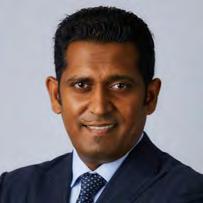
accelerating. According to Statista1, the total amount of data created, captured, copied, and consumed around the world is predicted to grow rapidly, reaching more than 180 zettabytes by 2025.
In addition, the global economy is shifting in the direction of more widescale production of new products and services that are based on digital technologies, including artificial intelligence, machine-learning, and other high-performance, computer-driven processes whose use cases and real value simply cannot be predicted. All of these game-changing technologies depend heavily on the availability of and access to data. Similarly, data is vital to the working of many online services, production facilities, and logistics processes, which are all key to the value chain of every industry.
The development of sophisticated analytics has played a massive role in the rapid rise of data’s importance too, as progress in these technologies has significantly lowered the costs involved with collecting, storing, and analysing raw information. Modern data analytics have enabled advanced methods of processing data which, in turn, means greater value can be realised from that data.

But if data is the new oil, what impact does this have on datacentres, where all the analysis and storing of the data takes place? Today’s critical systems are dependent on datacentres, which makes their seamless, reliable, and ongoing operation a priority. However, these facilities are notably missing from most conversations about critical infrastructure resilience.
If data is the lifeblood of business, datacentres are the heart. Datacentres are essential infrastructure that envelop and connect all other crucial sectors. Industries such as transportation, logistics, government services, energy, finance, security, healthcare, and more depend on up-to-the-second information that is stored in and accessed through these facilities.
Datacentres have always been important, but the dramatic growth of cloud services, virtualisation, and hyperscale computing mean that businesses of every size and in every
sector now depend on them for their everyday business operations.
Unlike power lines and electricity grids, we do not physically see datacentres in the course of our daily lives, as they are typically located in large structures on the periphery of our towns and cities.
Regardless of their visibility, the world has never been more dependent on datacentres and the cloud to work, collaborate, and interact on a business and social level. Concurrently, with a fragile global economy still recovering from the pandemic, it has become absolutely critical that we secure these assets, as they have become a key driver for economic growth in the new economy.
Recognising datacentres as critical infrastructures will encourage infrastructure operators, regulatory bodies, facility owners, and other stakeholders to invest in datacentre resilience. Instead of being focused on cost effectiveness and bandwidth capacity, we should be looking at continuity and resilience measures that could help datacentres survive any major failures. Much of the time, infrastructure operators do not know where their company’s data is being stored or which datacentres they are using.
Because datacentres have become so key to the delivery of essential services, businesses need to start asking some of the questions they normally raise in relation to the protection of critical infrastructure. Integrated security systems are needed to add layers of protection to safeguard today’s datacentres.
These could include IP cameras that guard the perimeter and interior of the physical sites, radar technology to pinpoint any suspicious or anomalous movement on the premises, and network door stations that control access to specific areas and rooms.
Other tools to consider might include two-way loudspeakers to address potential intruders, and video management software to oversee and control it all from a central location. With an approach of this nature, threats are identified and neutralised at an early stage, or prevented altogether.
Recognising datacentres as critical infrastructures will encourage operators, regulatory bodies, facility owners, to invest in datacentre resilience

Sky Views Observatory is the latest attraction from Emaar which includes Sky Observatory, Sky Glass Slide and Sky Edge Walk; three distinctive experiences which provides guests with unforgettable memories and unbridled fun. Sky Views Observatory is located 220M above the ground and sitting atop the Address Sky View hotel and is now Dubai’s greatest adrenaline pumping attraction
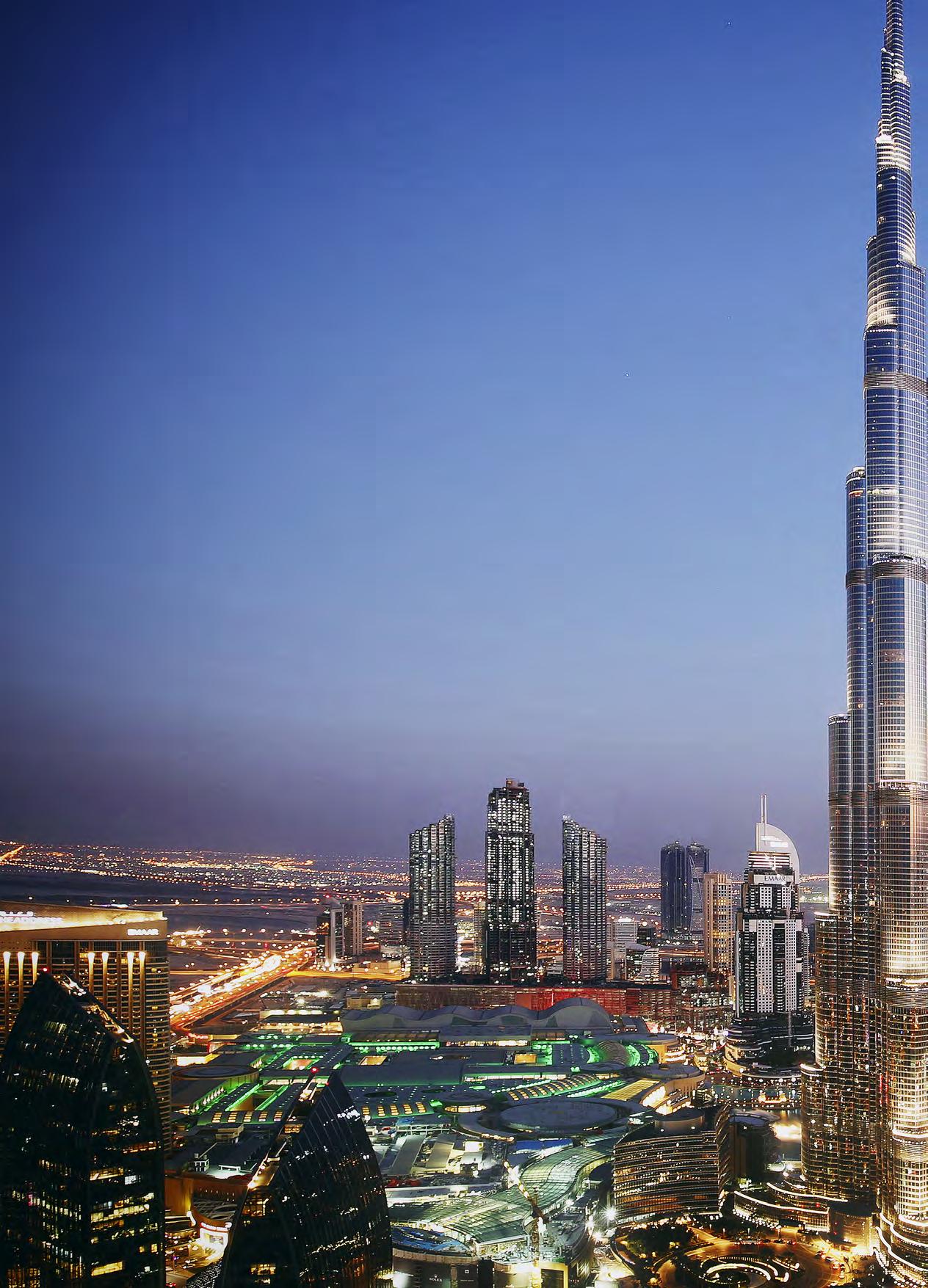

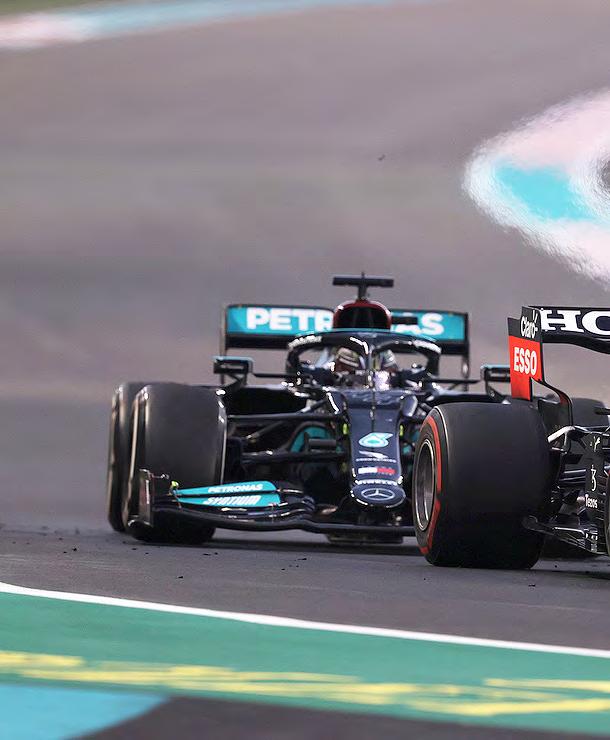
A former racer himself, founder Soichiro Honda believed in competition at the highest levels as a means of improving his company, its people and products. More than 55 years later, Honda continues to view racing as a training ground for engineers and designers. The pressures of racing challenge forcing them to find new solutions to problems as they arise.
Honda has celebrated its most successful season of racing worldwide, highlighted by its drivers claiming both the FIA Formula One and NTT INDYCAR SERIES championships. As part of a multi-year agreement, Oracle will bring its Marketing Cloud to develop fan experience with new ways to engage with the sport’s global audience. Oracle also brings in data analytics and plans to develop a roadmap with Red Bull Racing engineers to expand on the team’s existing data science and analysis tools over the coming seasons. Oracle’s Cloud platform will enable wider use of AI and ML to optimise on and off-track performance.
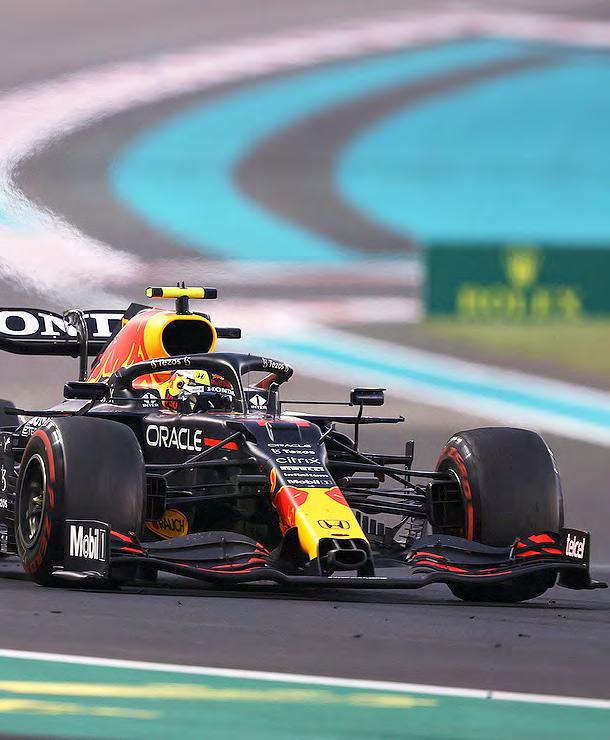
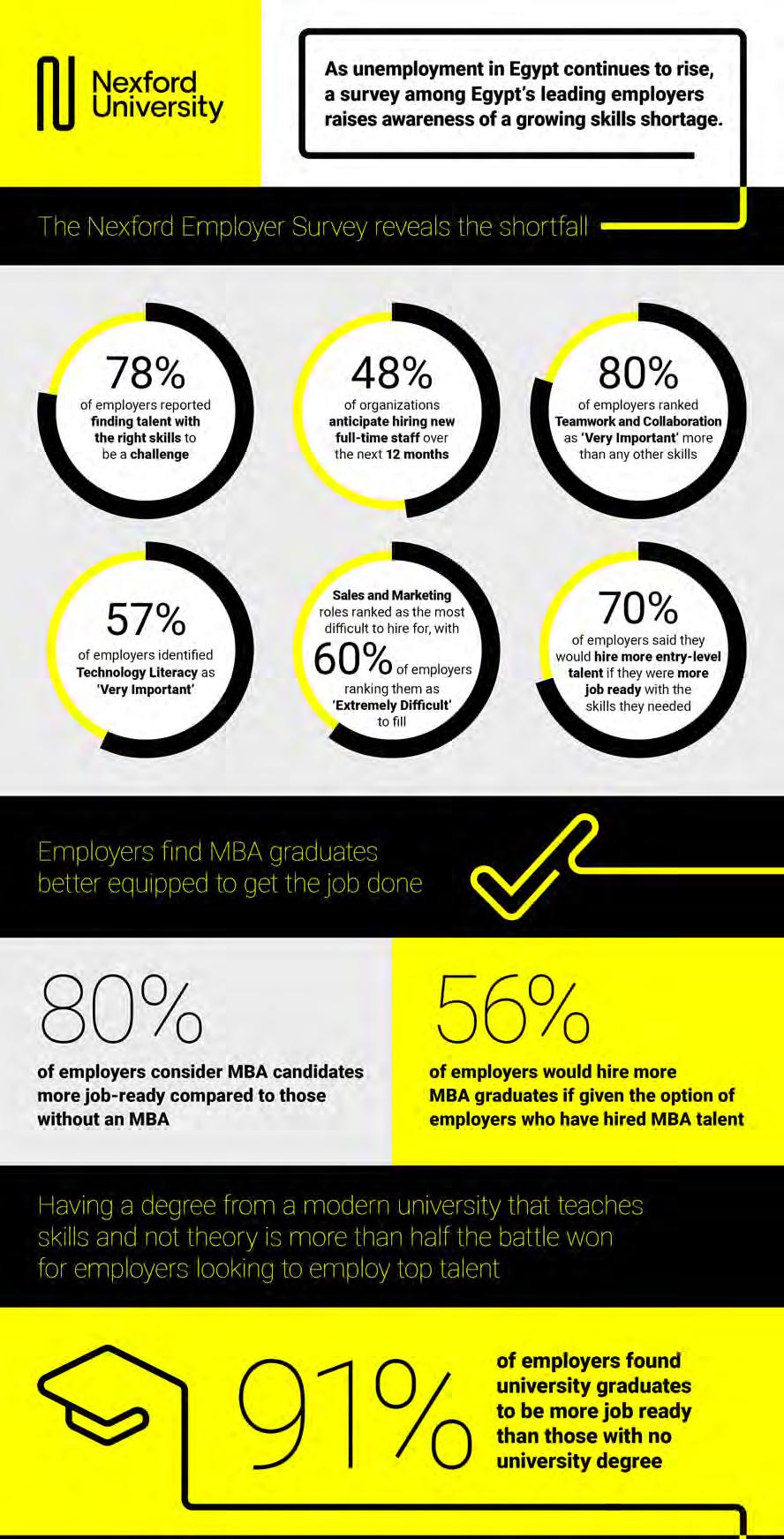
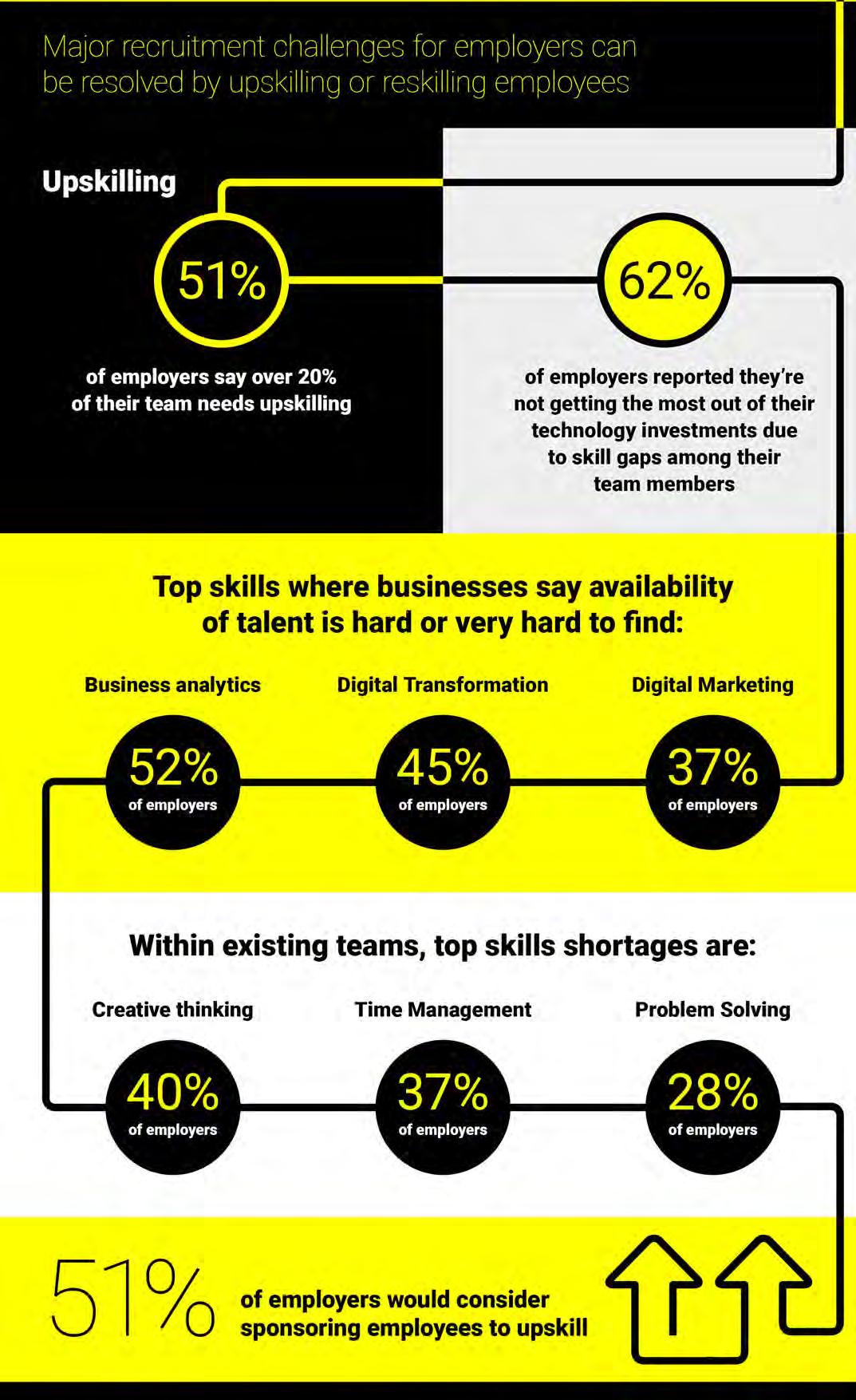
SOURCE: The Digital SME, How Are Small and Medium Enterprises in the Middle East and Africa, Embracing a Digital Future by Mastercard.
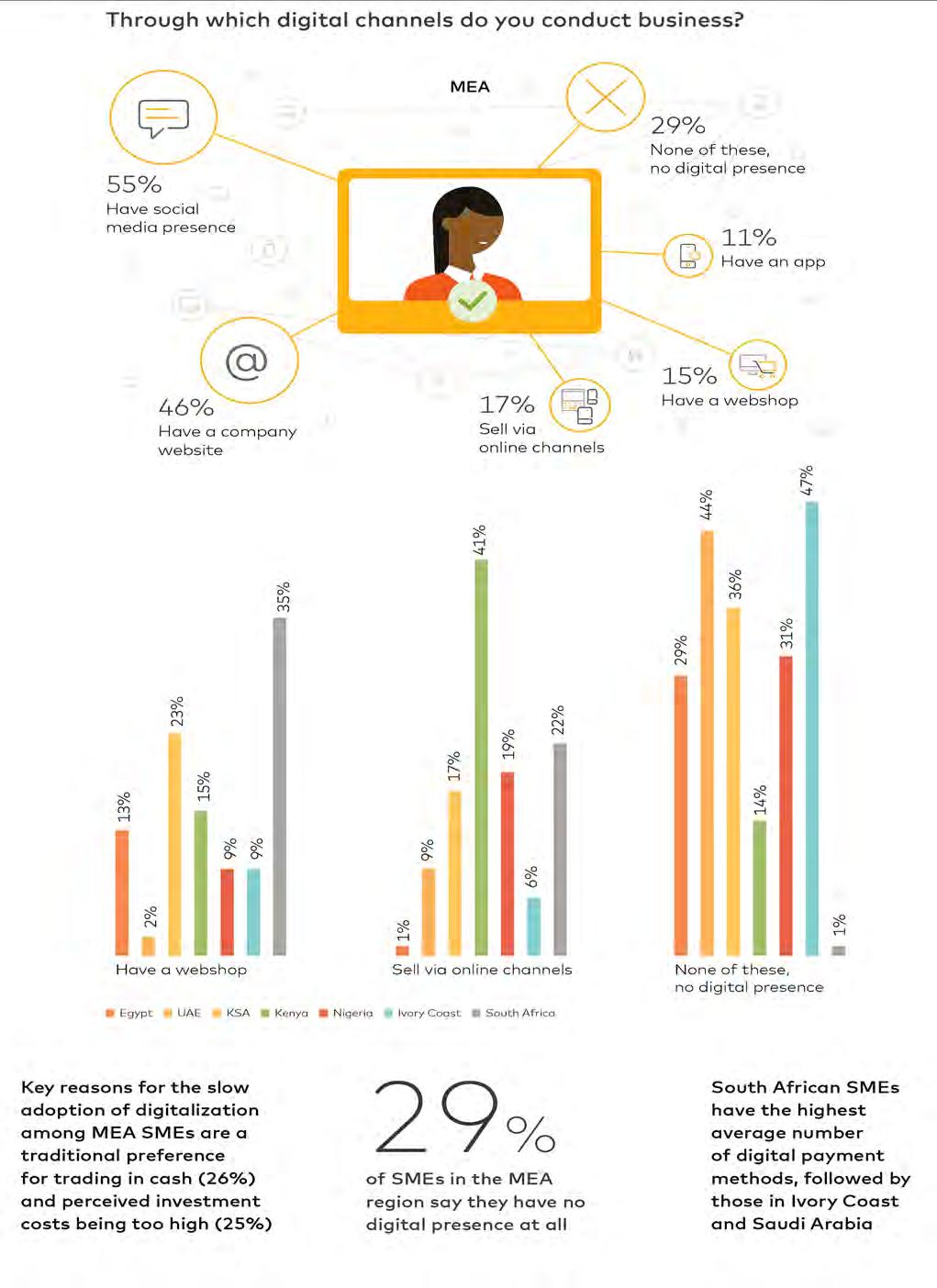
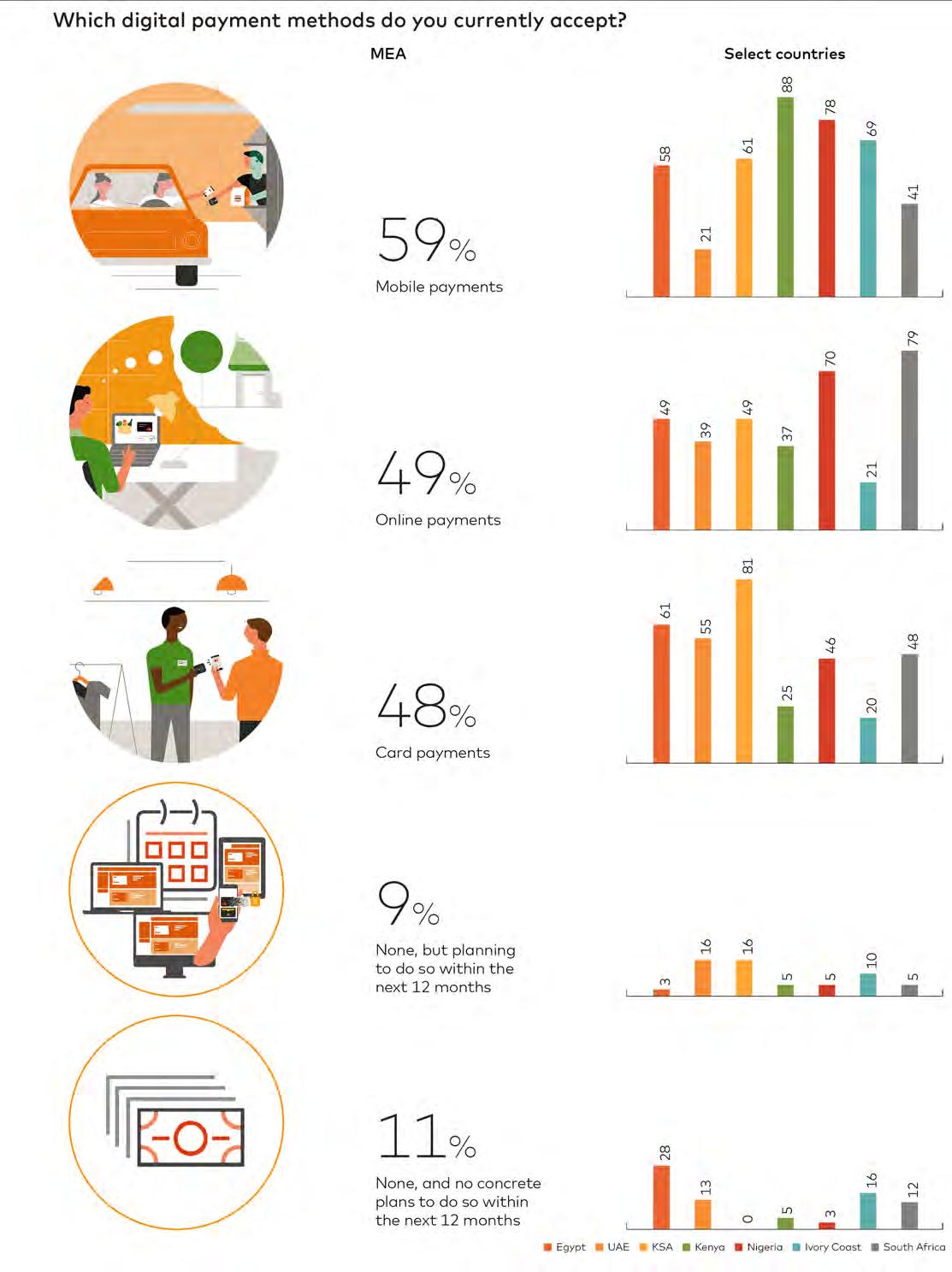
March 17, 2022
Address Dubai Marina, Dubai - UAE
